|

HOME |
ABOUT | INDEX |
NEWS |
FACEBOOK |
CONTACT
GAY
Homosexual Men | Men Loving Men
Men
romantically attracted to men...
The word “gay” describes a man who is
primarily or exclusively attracted to or involved
with other men romantically, emotionally, and/or
sexually. As a sexual orientation, it can be
further defined as an innate, enduring, inherent, and
immutable pattern of feelings and behavior in which a
man has an affectional, romantic, emotional, spiritual,
sensual, and/or sexual affinity or desire for other men.
Clinically speaking, it refers to homosexual men.
It can also be used as an umbrella term for everyone who
has same-sex romantic/sexual attractions or relations.
Sexual
orientation is a complex aspect of human identity that
involves an enduring pattern of attraction, and being
gay is just one of the various sexual orientations that
exist. It's important to recognize and respect the
diversity of human experiences and identities.
Additionally, it's crucial to approach discussions about
sexual orientation with sensitivity and an open mind, as
people's experiences can vary widely.
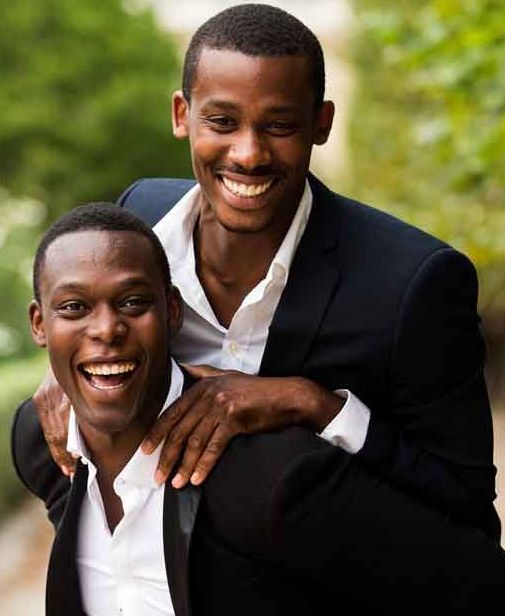
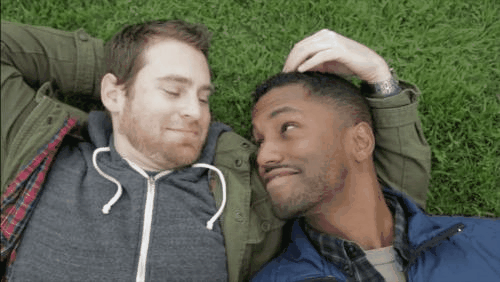
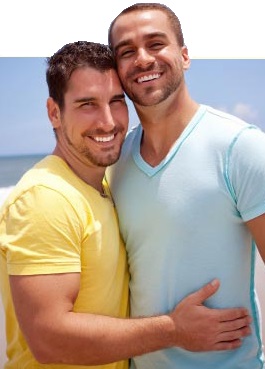
“Gay” is a word that primarily refers to a homosexual
person, especially a homosexual man. The term was
originally used to refer to feelings of being
"carefree", "happy", or "bright and showy." It had also
come to acquire some connotations of "immorality" as
early as 1637.
The term's use as a reference to homosexuality may date
as early as the late 19th century, but its use gradually
increased in the 20th century. In modern English, "gay"
has come to be used, as an adjective and as a noun, to
refer to the people, especially to men, and the
practices and cultures associated with homosexuality. By
the end of the 20th century, the word "gay" was
recommended by major LGBTQ groups and style guides to
describe people attracted to members of the same sex.
Research: Unique Stressors for Gay Men
True Definition of Gay
Steve's Coming Out Story
Andrew Scott Feels Lucky to Have Been Born Gay
HRC: Responding to Children's Questions About LGBTQ
Issues
Video Talk: Dating is Difficult for a Gay Guy
He's Not My Boyfriend
First Time Gay Stories and Experiences
Awareness Advocacy
Project: What
Does Gay Mean?
Info: Sexual Orientation
78-Year-Old Man and 13-Year-Old Boy Talk About Being Gay
LGBTQ People are Marvels
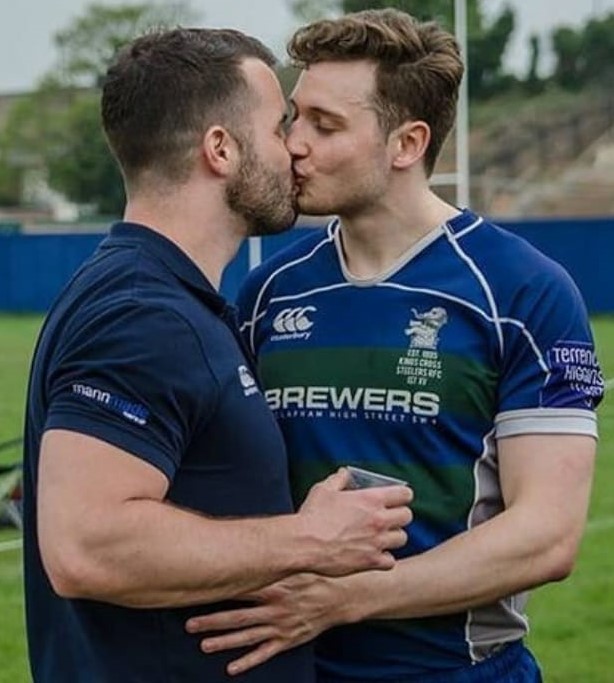
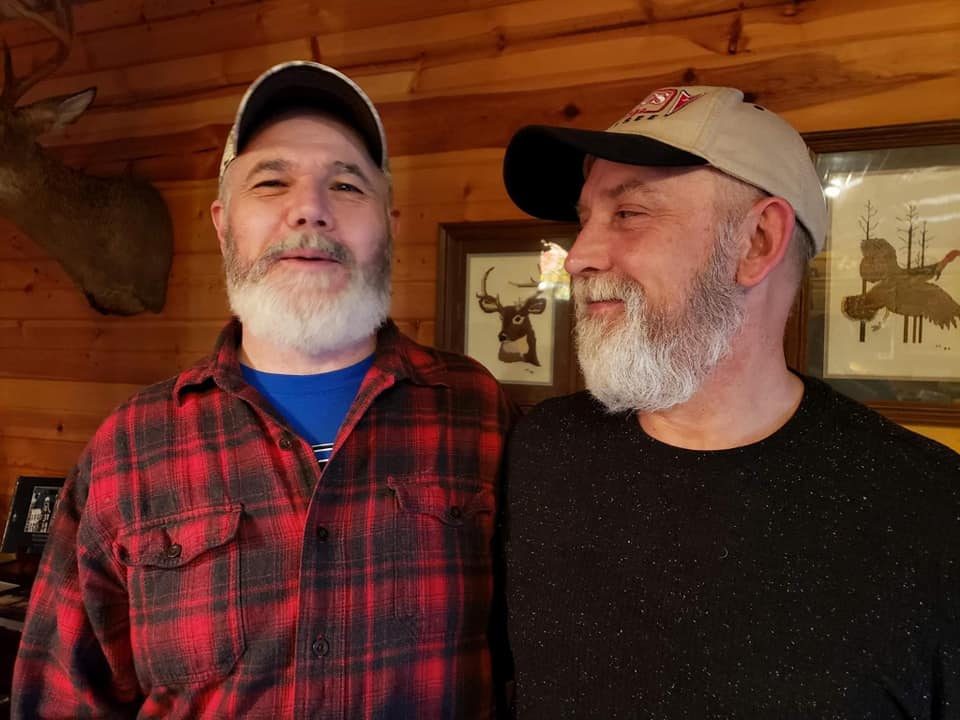
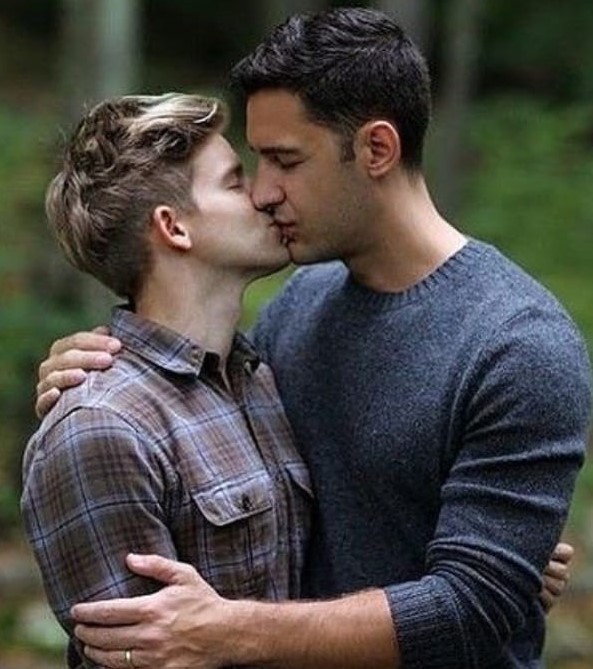
Some
reject the term "homosexual" as an identity-label
because they find it too clinical-sounding. They believe
it is too focused on physical acts rather than romance
or attraction, or too reminiscent of the era when
homosexuality was considered a mental illness.
Style guides, like the one used by Associated Press,
call for the literary or journalistic use of the word
"gay" over "homosexual." The term ”homosexual” tends to
sound too technical to be appropriately used in writing,
speech, and conversations focused on people and their
relationships. Use of the term “homosexual” is only
appropriate in the context of discussing academic,
clinical, scientific, or medical research.
Conversely, some reject term "gay" as an identity-label
because they perceive the cultural connotations to be
undesirable or because of the negative connotations of
the slang usage of the word.
Other
terms related to the word "gay" include... Men Having
Sex With Men (MSM) and Men Loving Men (MLM).
PBS Video: History of the Word Gay
Wikipedia:
Definition of Gay
Gay Men Share Sweet, Funny, Relatable Moments They Knew
They Were Fam
First Time Gay Stories and Experiences
Gay Story: How I Met the Love of My Life
Video: Why Are Homosexual People Called Gay?
Awareness Advocacy
Project: What
Does Gay Mean?
Male Montage: To Love
Somebody
Video Discussion: Gay Men Describe What it Means to be
Gay
Gays You'll Date Before You Die
NIH Report: Effects of
Masculine Ideals on Gay Men
Pics of 'Queer Eye' Heartthrob Antoni
Porowski
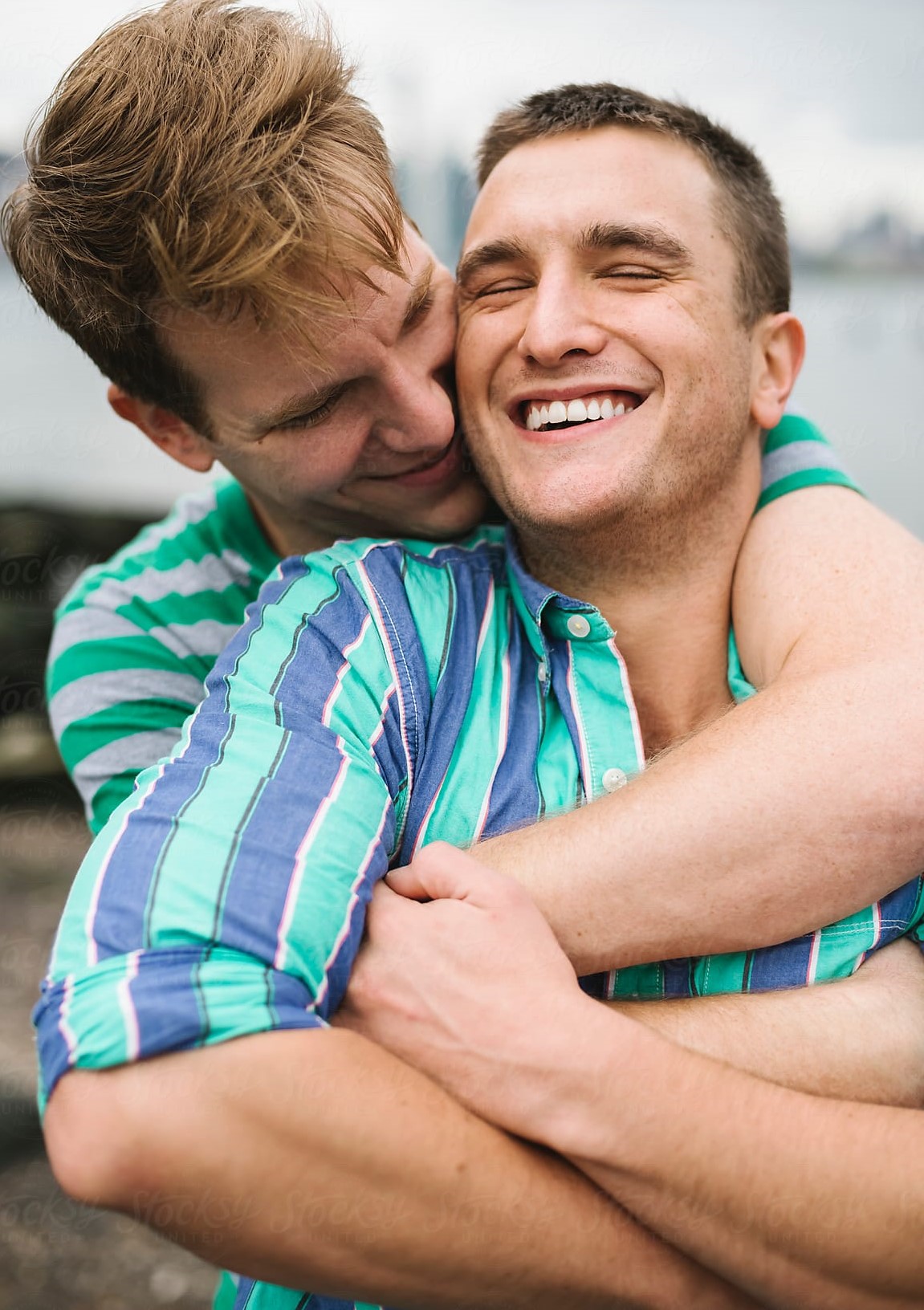
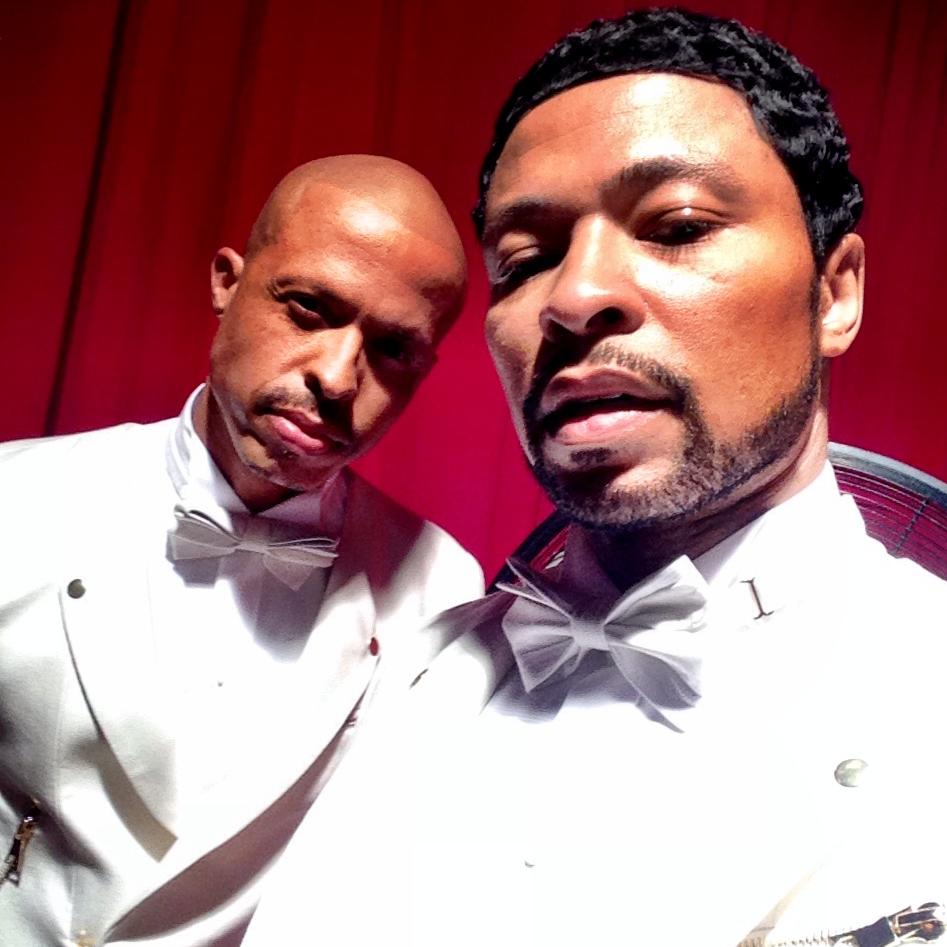
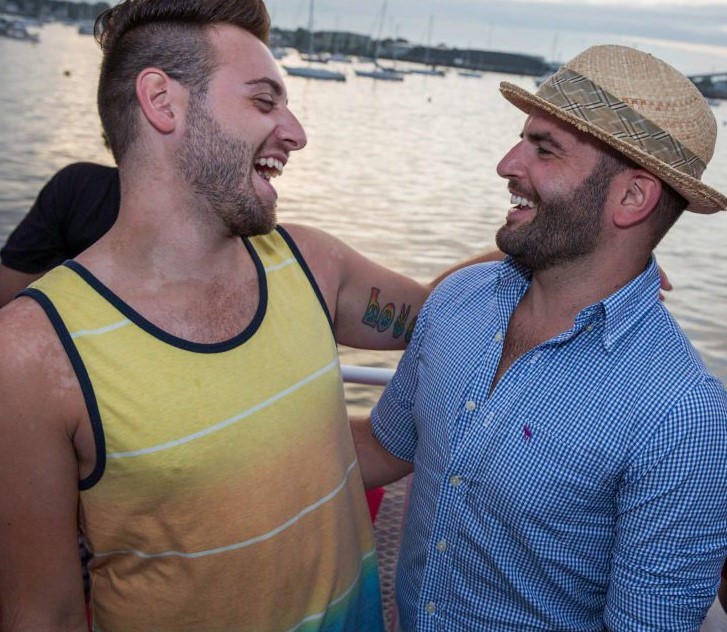
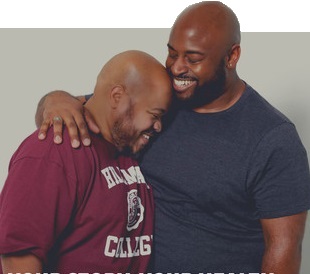
TED Talk: Why Am I So Gay?
True Definition of Gay
Things Gay and Bi Men Should Never Do in Healthy
Relationships
How Gay Came to Mean Homosexual
Advocate: Gay Men Photo
Feature
Gays You'll Date Before You Die
Video Discussion: Gay Men Describe What it Means to be
Gay
Wikipedia:
Definition of Gay
Video: What Does Gay Mean?
Accepting Yourself: Being
Gay is Not Easy
SPLC: Anti-Gay Myths
Debunked
Gay
Man Thriving
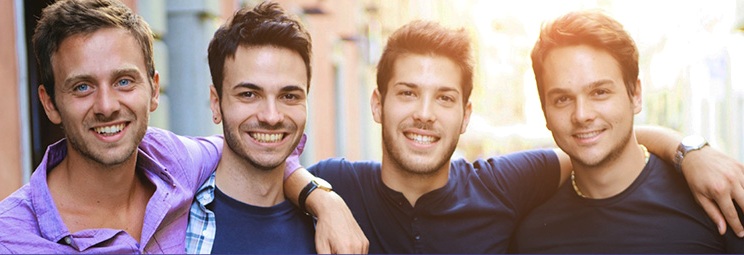
Terminology
Just as the word "gay" is sometimes used as a shorthand
for the term LGBTQ, so is "gay community" sometimes a
synonym for the LGBTQ community. In other cases, the
speaker may be referring only to homosexual men.
Starting in the mid-1980s in the United States, a
conscious effort was underway within what was then
called the gay community, to add the term
lesbian to the name of all gay organizations that
catered to both male and female homosexuals, and to use
the terminology of gay and lesbian, or
lesbian/gay when referring to that community.
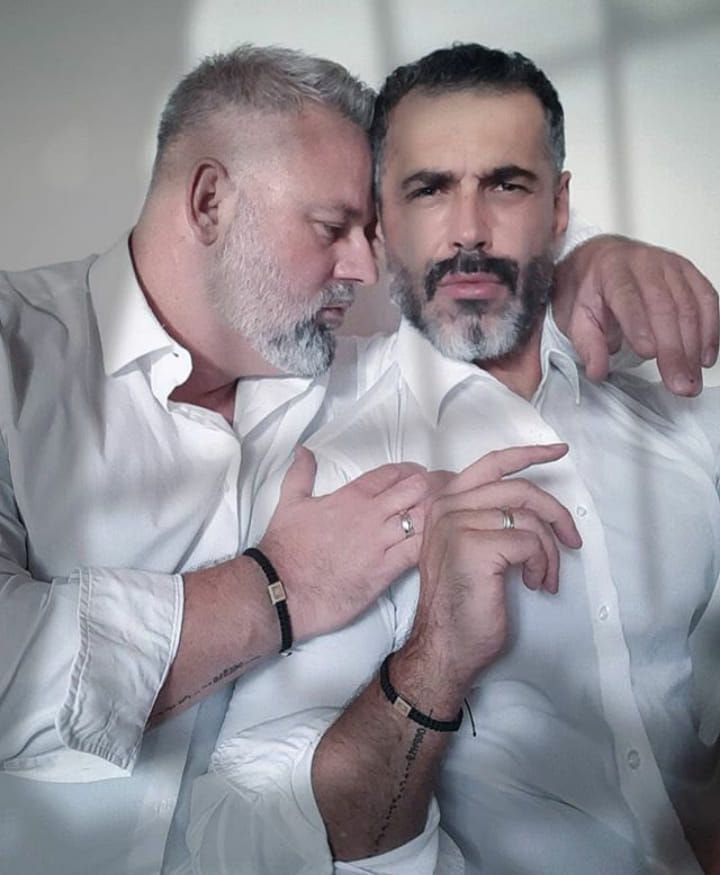
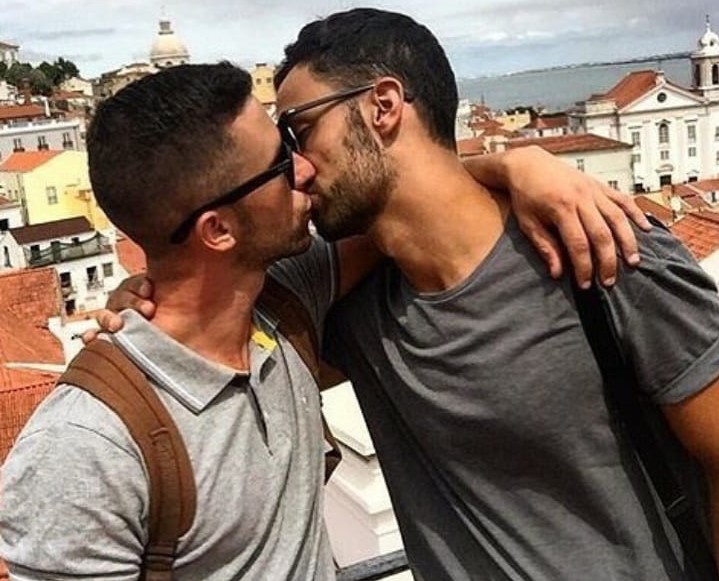
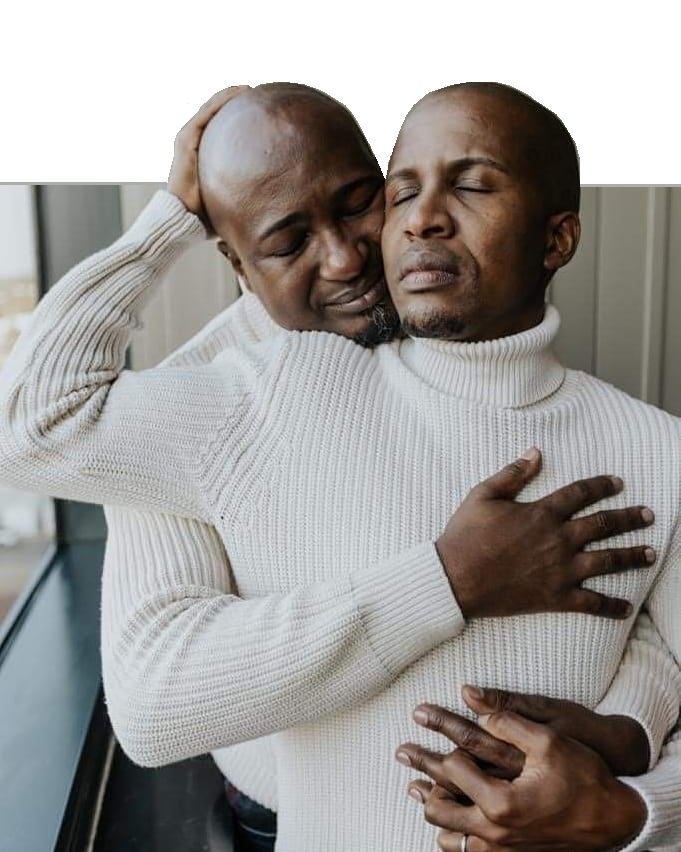

Male Montage: Trouble
Makers
Video: Hottest Openly Gay Male Celebrities
100 Gay Things To Do Before You Die
Michael and Ben
Your Song: My Love My Life
Land of Storms: Fine Line
All in the Family: Archie Meets a Gay Guy
For Anyone
Who's Been Told It's Just a Phase
Kang Guk and Tae Joo: Take
Me Apart
So, organizations like the National Gay Task Force
became the National Lesbian/Gay Task Force. For many
ardent feminist lesbians, it was also important that the
L come first, lest an L following a G become another
symbol of male dominance over women. In the 1990s, this
was followed by another equally concerted push to
include the terminology specifically pointing out the
inclusion of bisexuals and transgender people,
reflecting an end to the intra-community debate as to
whether these other sexual minorities were part of the
same sexual liberation movement.
In the 2000s it became
commonplace to add Q to the acronym, at first to to
recognize "questioning" persons and then to more broadly
encompass "queer" persons (an umbrella term for a
variety of sexual minorities). Most news organizations
have formally adopted this use, following the example
and preference of the LGBTQ organizations, as reflected
in their press releases and public communications.
Today, many people interpret the phrase "gay community"
to mean "the population of LGBTQ people."

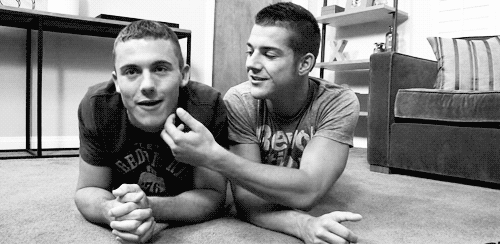
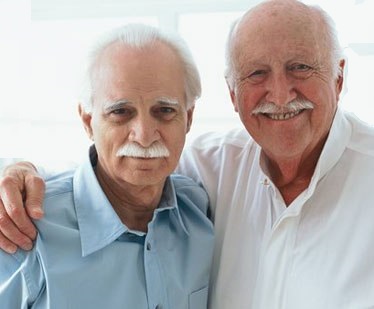
Gay Love
He's Not My Boyfriend
Johns Hopkins: Gay and Bisexual Men's Health Issues
Advocate: The Gay
Moustache
Gay Men Share Sweet, Funny, Relatable Moments They Knew
They Were Fam
Francis and Nicholas
Video Documentary: The Gay Word
Wikipedia: Homosexuality
Rock and Archie: Can't Take My Eyes Off of You
HuffPost: In Praise of
Visiting the Gay Bar
Somebody to Love
Alex and Winston: Someone
You Loved
Come At Me Bro
Male Montage: Blame it on the Girls
Homosexual Men
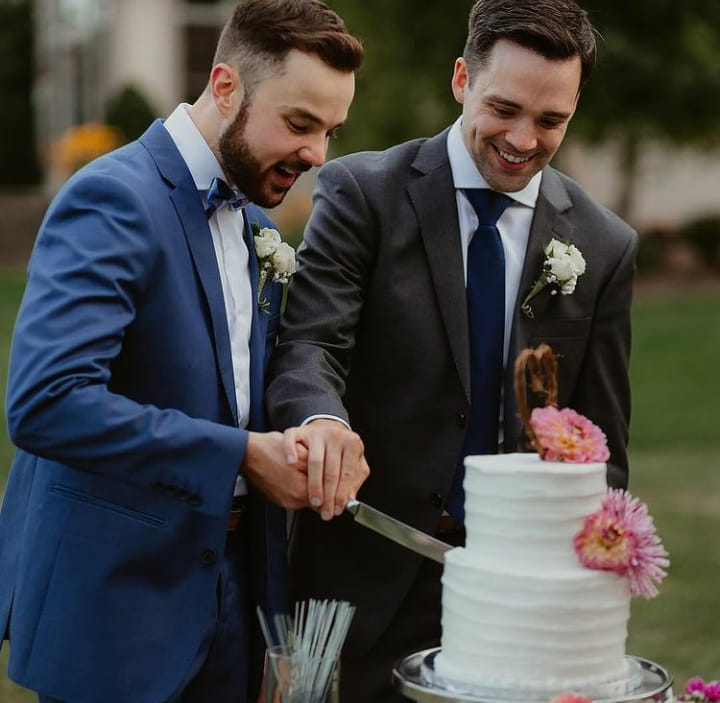
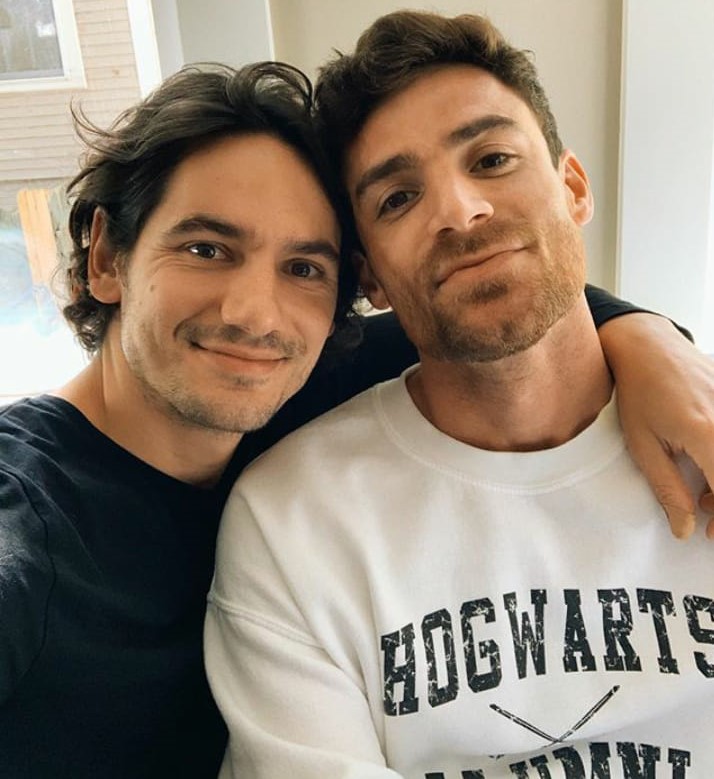
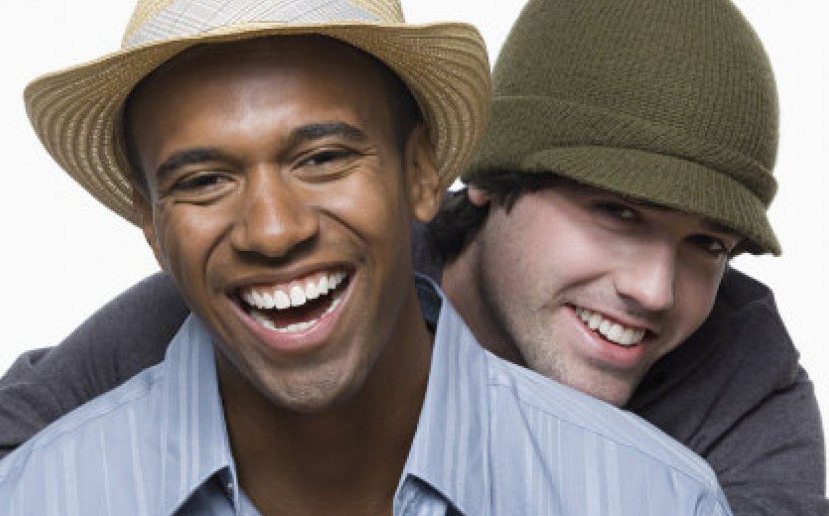
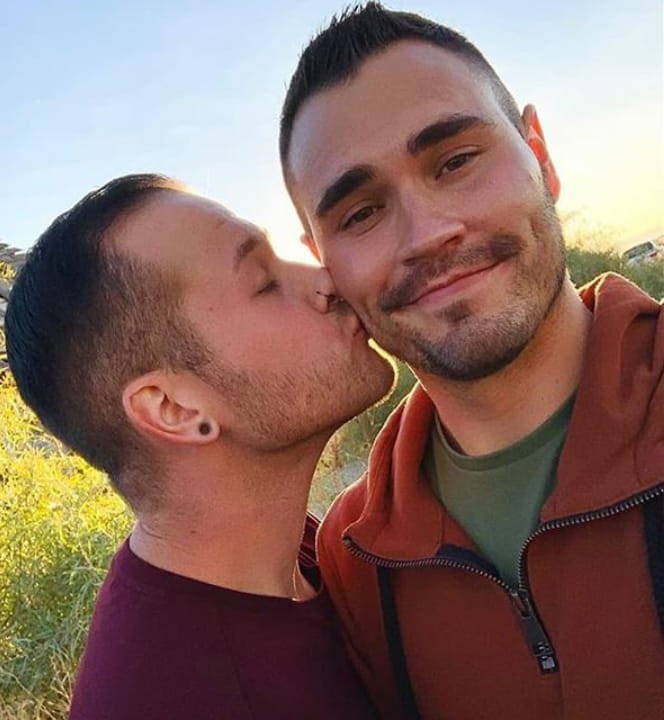
Research: Unique Stressors for Gay Men
True Definition of Gay
Steve's Coming Out Story
All in the Family: Archie Meets a Gay Guy
HRC: Responding to Children's Questions About LGBTQ
Issues
Video Talk: Dating is Difficult for a Gay Guy
He's Not My Boyfriend
Rock and Archie: Rescue My Heart
First Time Gay Stories and Experiences
Awareness Advocacy
Project: What
Does Gay Mean?
LGBTQ People are Marvels
Info: Sexual Orientation
Smart Gay Men
While straight men face educational crisis, gay men
excel academically, study finds.
Lesbians,
however, perform more poorly than straight women in a
number of academic measures, according to a study
published in the American Sociological Review.
“I love gay people,” activist and playwright Larry
Kramer proclaimed at the outset of a 2004 speech in New
York City. “I think we’re better than other people. I
really do. I think we’re smarter and more talented and
more aware.” A new study making waves among
LGBTQ-focused academics lends empirical credence to the
iconic Act Up co-founder’s prideful claims — not to the
supposed sweeping superiority of gay men, rather to the
more narrow assertion that this group is remarkably
inclined to excel academically. But the paper,
which was published in the American Sociological Review
in Feb 2022 comes to starkly opposing conclusions about
how growing up gay appears to affect the academic
performance of males versus females.
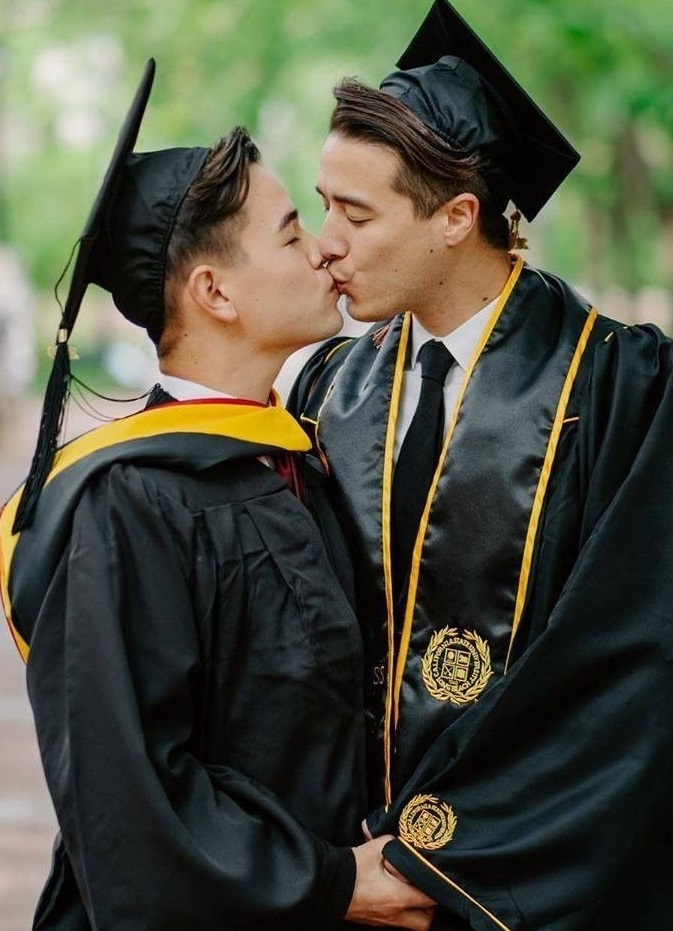
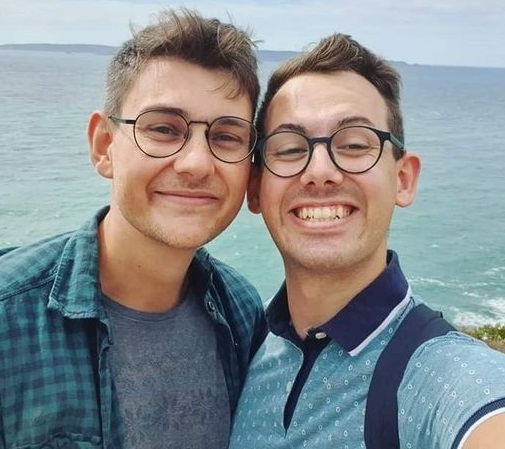
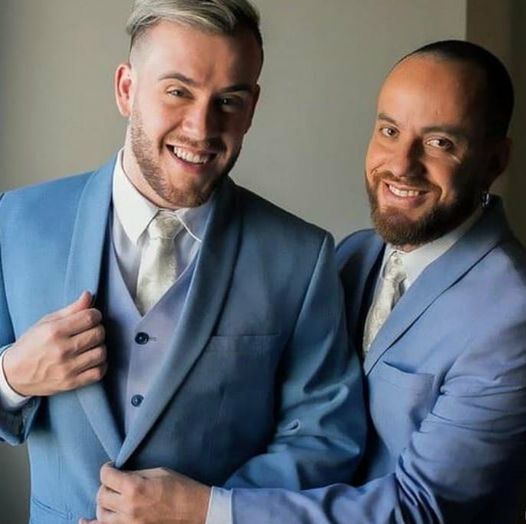
Accepting Yourself: Being
Gay is Not Easy
SPLC: Anti-Gay Myths
Debunked
Gay
Man Thriving
Male Montage: Trouble
Makers
Video: Hottest Openly Gay Male Celebrities
100 Gay Things To Do Before You Die
Michael and Ben
Your Song: My Love My Life
Land of Storms: Fine Line
All in the Family: Archie Meets a Gay Guy
For Anyone
Who's Been Told It's Just a Phase
Kang Guk and Tae Joo: Take
Me Apart
Andrew Scott Feels Lucky to Have Been Born Gay
Things Gay and Bi Men Should Never Do in Healthy
Relationships
Joel
Mittleman, a University of Notre Dame sociologist and
the paper’s sole author, found that on an array of
academic measures, gay males outperform all other groups
on average, across all major racial groups. Conversely,
he concluded that lesbians perform more poorly in school
overall and that Black gay women have a much lower
college graduation rate than their white counterparts.
“This article is focusing a lens on what we do to all
kids,” Lisa Diamond, a psychology professor at the
University of Utah, said of the societal pressures that
appear to impede lesbians in school even as these
stressors possibly unnerve gay males into compensating
for homophobia through academic striving. “And the most
vulnerable kids are going to show it first.”
In recent years, academics, lawmakers and journalists
alike have sounded an increasingly urgent alarm that on
balance, American males are stuck in a scholastic funk.
As the economic gap between those with and without a
college degree has widened, women’s college graduation
rate has risen in tandem, but men’s rate has remained
largely stagnant for decades. Today, women comprise 59.2
percent of college students, according to the National
Student Clearinghouse.
Mittleman’s research indicates that this
characterization of the educational gender gap is
critically lacking in specificity. It is, in fact,
straight males who tend to be mired in a scholastic
morass. And the considerable academic progress that
young women have charted since the advent of second-wave
feminism has been largely restricted to the
heterosexuals among them.
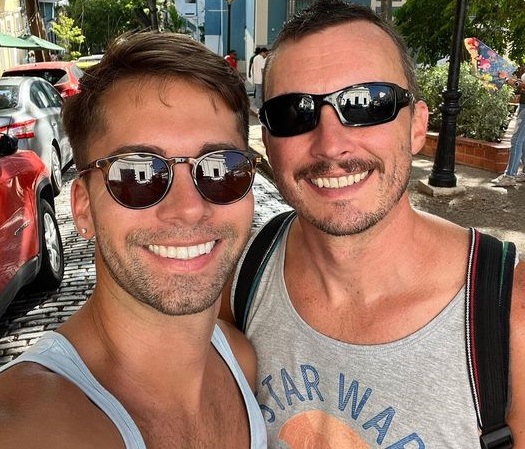
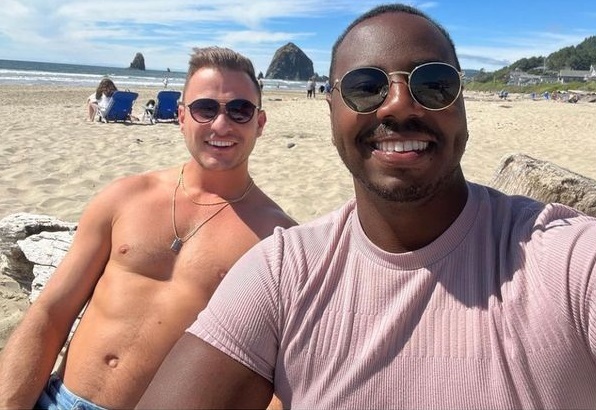
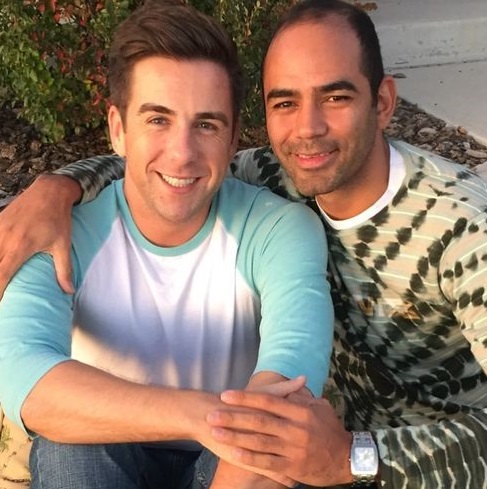
TED Talk: Why Am I So Gay?
Male Montage: Trouble
Makers
Gay Men's Health and
Identity: Social Change and Life Course
Video Documentary: The Gay Word
Gay Men Share Sweet, Funny, Relatable Moments They Knew
They Were Fam
PBS Video: History of the Word Gay
Michael and Ben
78-Year-Old Man and 13-Year-Old Boy Talk About Being Gay
True Definition of Gay
Video Discussion: Gay Men Describe What it Means to be
Gay
Francis and Nicholas
Gay
Man Thriving
Benefit of adding sexuality questions to surveys
Mittleman was able to reach his striking research
findings thanks to a move during President Barack
Obama’s second term to add questions about sexual
orientation to a trio of federally funded, nationally
representative surveys. These major annual surveys —
which focus on health, drug use and crime victimization
— provided the sociologist with information regarding
nearly half a million Americans’ diplomas.
Additionally, the National Center for Education
Statistics’ High School Longitudinal Study posed
questions about sexuality for the first time to the
cohort it followed between 2009 and 2017. From this,
Mittleman mined a trove of data including 15,270
students’ high school and undergraduate transcripts.
The three surveys of American adults consistently
indicated that gay men are far more likely than straight
men to have graduated from high school or college, with
just over half of gay men having earned a college
degree, compared with about 35 percent of straight men.
Some 6 percent of gay men have a Ph.D., J.D. or M.D. — a
rate 50 percent higher than that of straight men.
Mittleman found that gay men’s considerably higher
levels of educational attainment hold even after taking
into account differences in men’s race and birth
cohorts. What’s more, gay men’s college graduation rate
dramatically bests even that of straight women, about
one-third of whom have a bachelor’s degree.
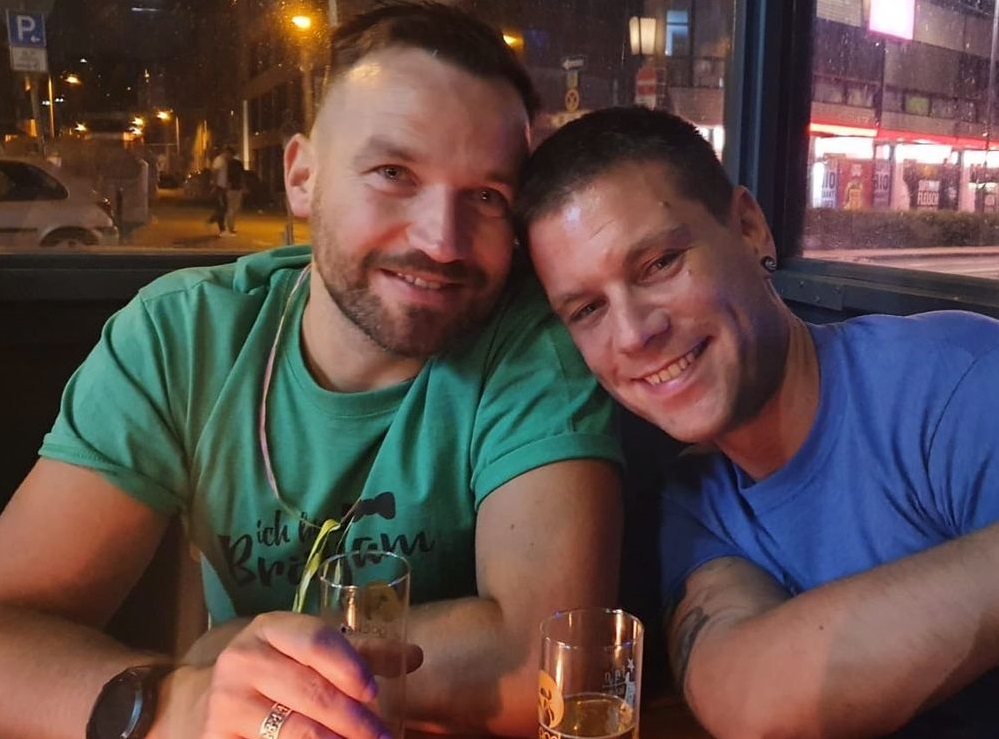
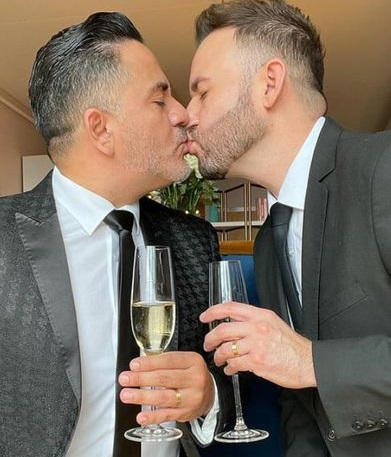
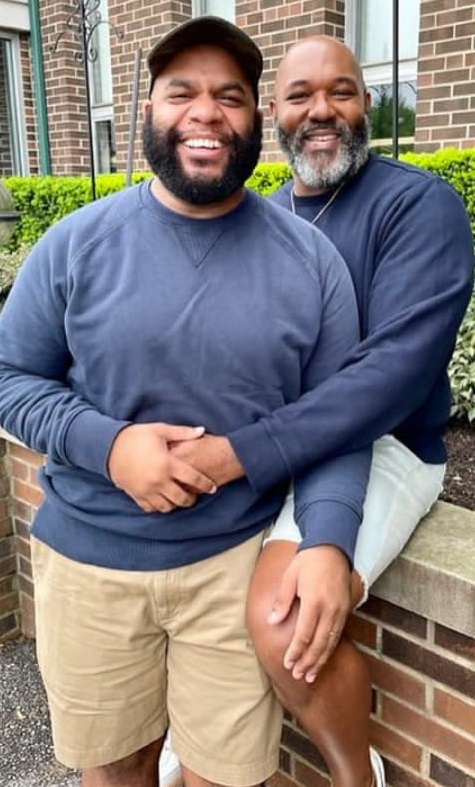
Wikipedia:
Definition of Gay
Video: What Does Gay Mean?
Info: Sexual Orientation
PBS Video: History of the Word Gay
Romeo and Julio
How Gay Came to Mean Homosexual
HuffPost: In Praise of
Visiting the Gay Bar
Video: Why Are Homosexual People Called Gay?
Awareness Advocacy
Project: What
Does Gay Mean?
Male Montage: To Love
Somebody
He's Not My Boyfriend
Video Documentary: The Gay Word
Info: LGBTQ Community
Gay Men Share Sweet, Funny, Relatable Moments They Knew
They Were Fam
First Time Gay Stories and Experiences
LGBTQ People are Marvels
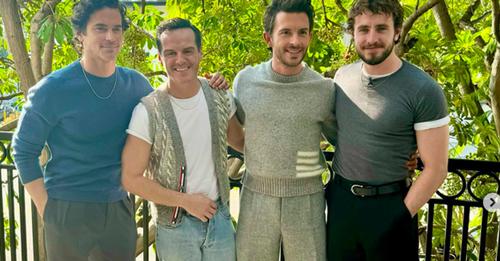
The longitudinal survey showed that compared with their
straight male peers, gay males earned higher GPAs in
high school and college, enrolled in harder classes,
took school more seriously, had more academically minded
friends and had a much lower rate of ever dropping out
for a month or more. In stark contrast, these
performance disparities were largely reversed when
comparing lesbians with straight girls. Most strikingly,
26 percent of lesbians reported at least one dropout
period, compared with 15 percent of heterosexual
females.
The US lesbian population’s overall college graduation
rate, which ranged between 41 percent and 47 percent in
the three survey studies, is significantly higher than
that of straight women. But Mittleman found this
advantage was limited almost entirely to white lesbians,
and among women born more recently, gay women’s
educational edge has eroded.
Historically, girls have received better grades than
boys. But during much of the 20th century, societal
constraints — including the predominant expectation that
young women would become wives and mothers and not
pursue careers — suppressed their graduation rates. In
theory, this left lesbians with an advantage. But as
constrictions on women’s potential have eased since the
1960s, straight women’s college graduation rate has
risen to the point of statistical parity with lesbians
among today’s young adults.
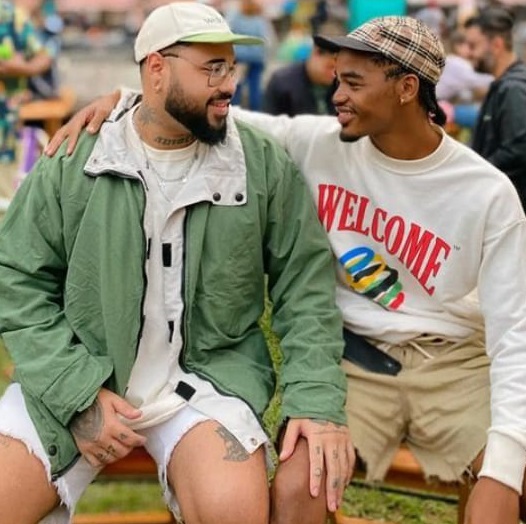
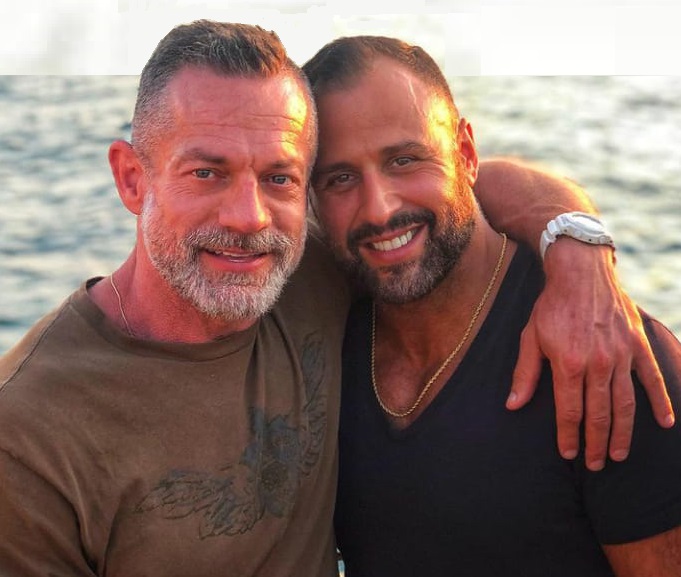
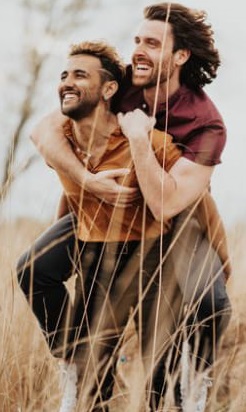
Video: Why Are Homosexual People Called Gay?
Awareness Advocacy
Project: What
Does Gay Mean?
Male Montage: To Love
Somebody
Info: Sexual Orientation
PBS Video: History of the Word Gay
He's Not My Boyfriend
Video Documentary: The Gay Word
Info: LGBTQ Community
Gay Men Share Sweet, Funny, Relatable Moments They Knew
They Were Fam
First Time Gay Stories and Experiences
The
Nancy Drew effect
Searching for the drivers of these differences in school
performance between straight and gay students, Mittleman
used a machine-learning algorithm to identify response
patterns to survey questions that predicted being male
versus female among members of the longitudinal cohort.
In turn, he found that being atypical for their gender
in survey responses helped explain at least part of the
gay students’ GPA variation.
This suggested that not just sexual orientation, but its
intersection with gender affectation could have
influenced how well the gay and lesbians students did in
school. Seeking to explain the sociocultural
dynamics possibly at play in these complex equations,
Mittleman pointed in his paper to the feminine
archetype, long a prized ideal in white, middle-American
culture, of the demurely diligent student. (Think Nancy
Drew.)
Characterizing masculinity as a fragile and insecure
state, Mittleman argued that the long-standing
anti-intellectual bias that plagues many American boys
is driven in large part by their urge to assert their
masculinity by differentiating themselves from the
good-girl archetype. Gay boys, however, appear willing —
even eager — to flout gender norms in academics. “To the
extent that it’s feminine to study and appreciate
validation in an academic sphere, the gay boys will have
an advantage,” Yale School of Public Health psychologist
John Pachankis said.
On the flip side, young lesbians may be disinclined to
identify with the femininity intrinsic to the
good-student ideal, Mittleman suggested. Moreover, by
tending to present as more masculine, lesbians may be
slapped with a “bad girl” label by educational
authorities, subjected disproportionately to school
punishment and generally discouraged academically. This
could hold especially true for Black girls, whom white
authority figures already tend to stereotype as
masculine, according to previous research. “Girls who
present as masculine are seen as troublemakers, are seen
as suspicious in some way,” Mittleman said.
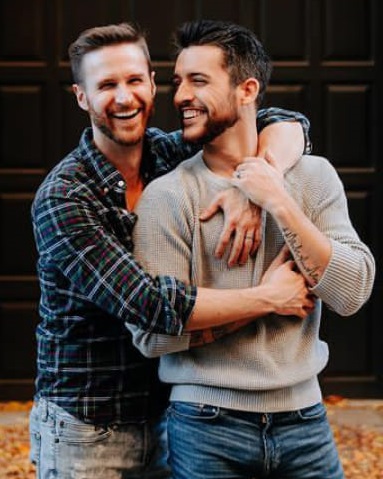
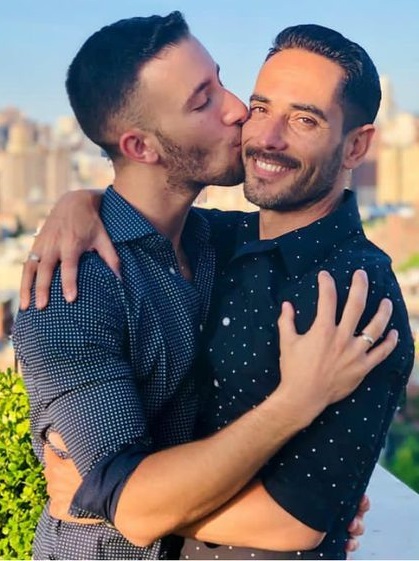
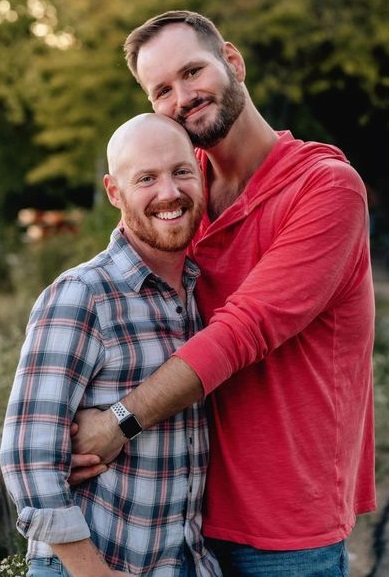
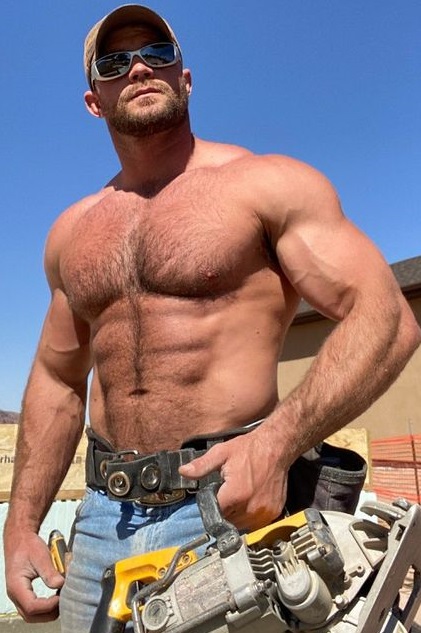
Gay Guyde: What Does Gay Mean?
Male Montage: Blame it on the Girls
Things Gay and Bi Men Should Never Do in Healthy
Relationships
Video: Boyfriend Adventure
Jamie's Coming Out Story
78-Year-Old Man and 13-Year-Old Boy Talk About Being Gay
All in the Family: Archie Meets a Gay Guy
Video: Why Are Homosexual People Called Gay?
NIH Report: Effects of
Masculine Ideals on Gay Men
The ‘Best Little Boy in the World’ phenomenon
An additional factor that Mittleman argued drives the
average gay boy to surpass even the average straight
girl academically is what’s known in queer psychology as
the “Best Little Boy in the World” phenomenon. This
refers to the title of the 1973 memoir by former
Democratic National Committee treasurer Andrew Tobias,
in which he chronicled his youthful crusade to appease
his internalized homophobia through admission to Harvard
University and other feats of superlative achievement.
In a 2013 paper published in Basic and Applied Social
Psychology, psychologist Mark Hatzenbuehler, now of
Harvard University, and Pachankis found evidence
suggesting that gay male college students indeed sought
to compensate for anti-gay stigma by deriving their
self-worth in part through academic mastery and other
forms of competition. This psychological paradigm also
comprises the bedrock of “The Velvet Rage,” psychologist
Alan Downs’ go-to bible for queer men, published in
2005, on “overcoming the pain of growing up gay in a
straight man’s world.”
While Mittleman is straight, he said he was nevertheless
bullied as a child for “not being sufficiently
masculine.” His brother, Dr. Chris Remishofsky, is gay
and said the findings of Mittleman’s paper closely
reflect his personal experience. “From a young age,”
said Remishofsky, a dermatologist in Sterling Heights,
Michigan, “I was determined to become a doctor so I
could prove to everyone that I could be successful even
though I was gay.”
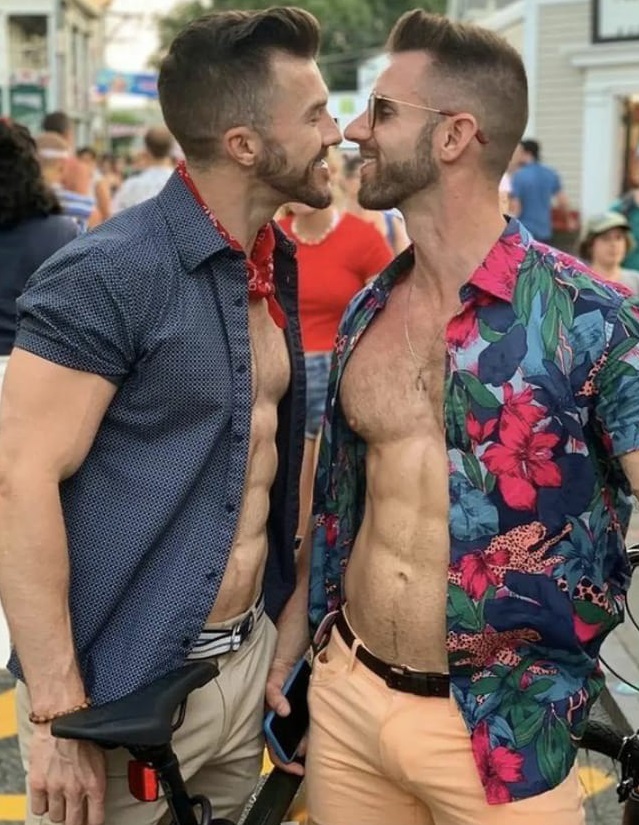
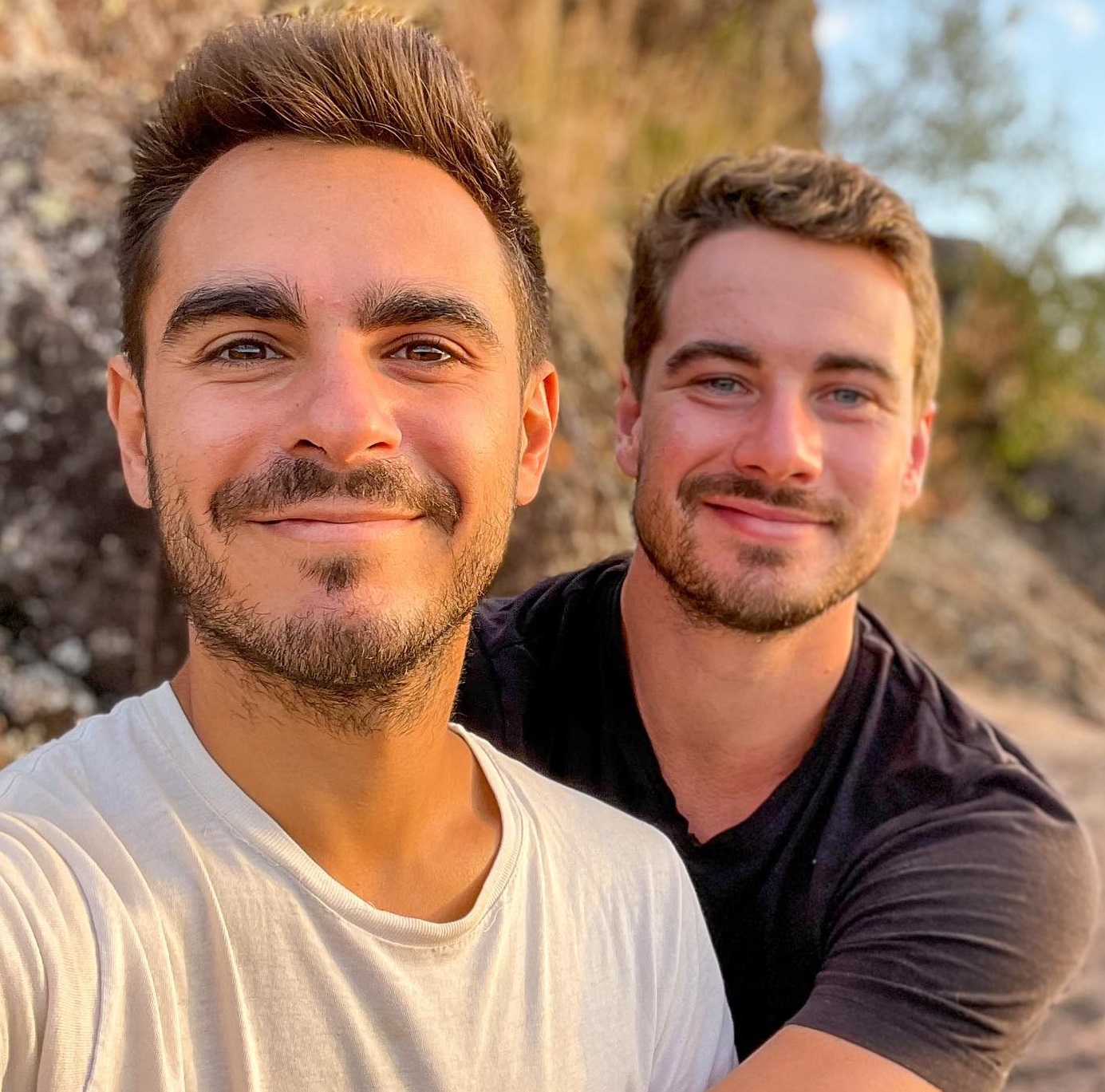
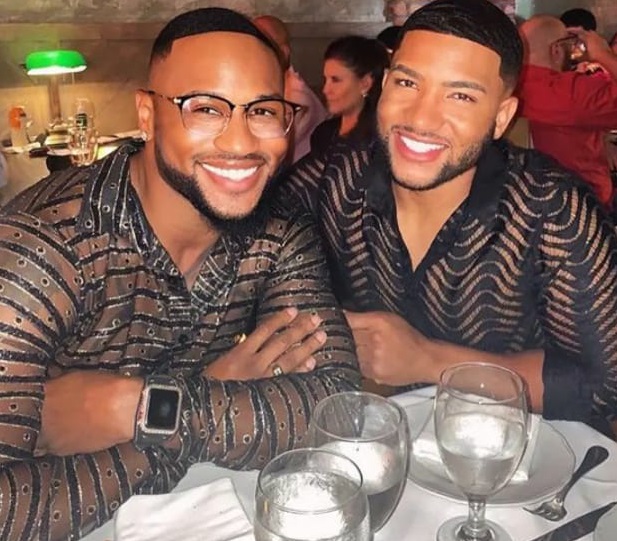
Accepting Yourself: Being
Gay is Not Easy
SPLC: Anti-Gay Myths
Debunked
Gay
Man Thriving
Male Montage: Trouble
Makers
Video: Hottest Openly Gay Male Celebrities
100 Gay Things To Do Before You Die
Michael and Ben
Your Song: My Love My Life
Land of Storms: Fine Line
All in the Family: Archie Meets a Gay Guy
For Anyone
Who's Been Told It's Just a Phase
Kang Guk and Tae Joo: Take
Me Apart
LGBTQ People are Marvels
An analysis by the Brookings Institution’s Hamilton
Project published in January 2022 found that gay male
couples earn $30,000 more annually than lesbian couples.
Ilan Meyer, a researcher at UCLA’s Williams Institute,
expressed intrigue over the story Mittleman’s paper
tells of many gay men apparently overcoming considerable
odds. Meyer pointed to the Centers for Disease Control
and Prevention’s Youth Risk Behavior Surveillance
reports that have chronicled the myriad stressors
lesbian, gay, bisexual and transgender young people
weather in school and the litany of deleterious impacts,
including depression and suicidality.
Indeed, Mittleman found that on the whole, lesbian, gay
and bisexual young people reported feeling more unsafe
in school and suffered higher levels of discrimination
and what’s known as minority stress than their straight
peers. “The effect of resilience to override effectively
all stressors is quite amazing,” Meyer said. “We’re
basically saying gay boys have a terrible school
environment, but still, on average, they’re doing
fantastically well. To me, that is still a major
question — how does that work?”
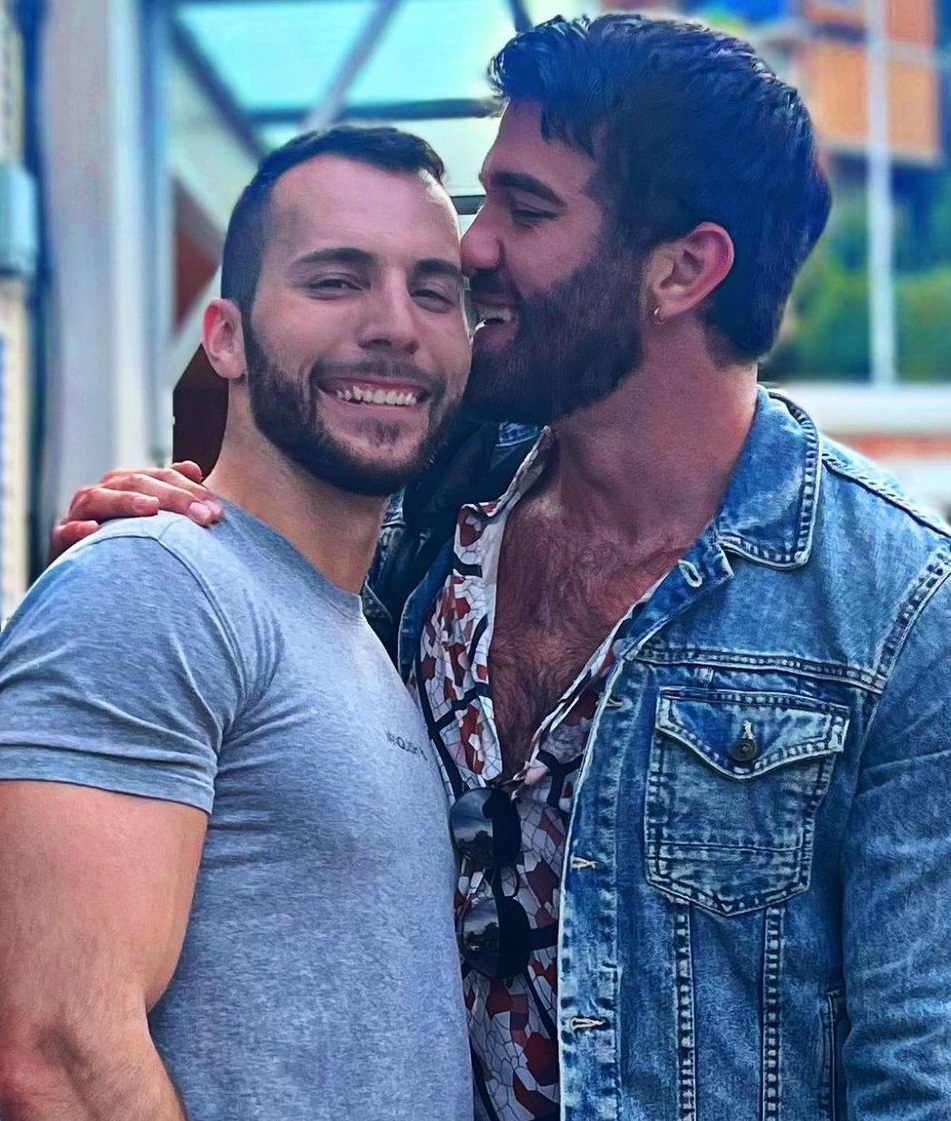
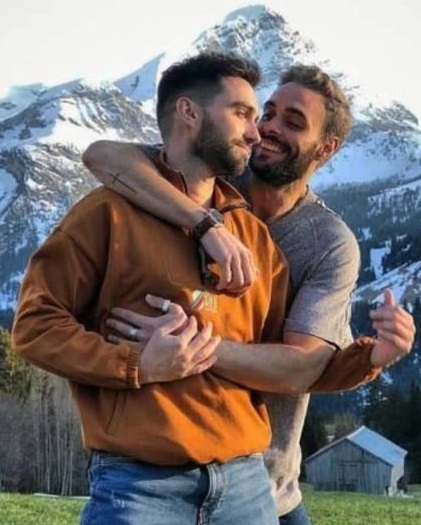
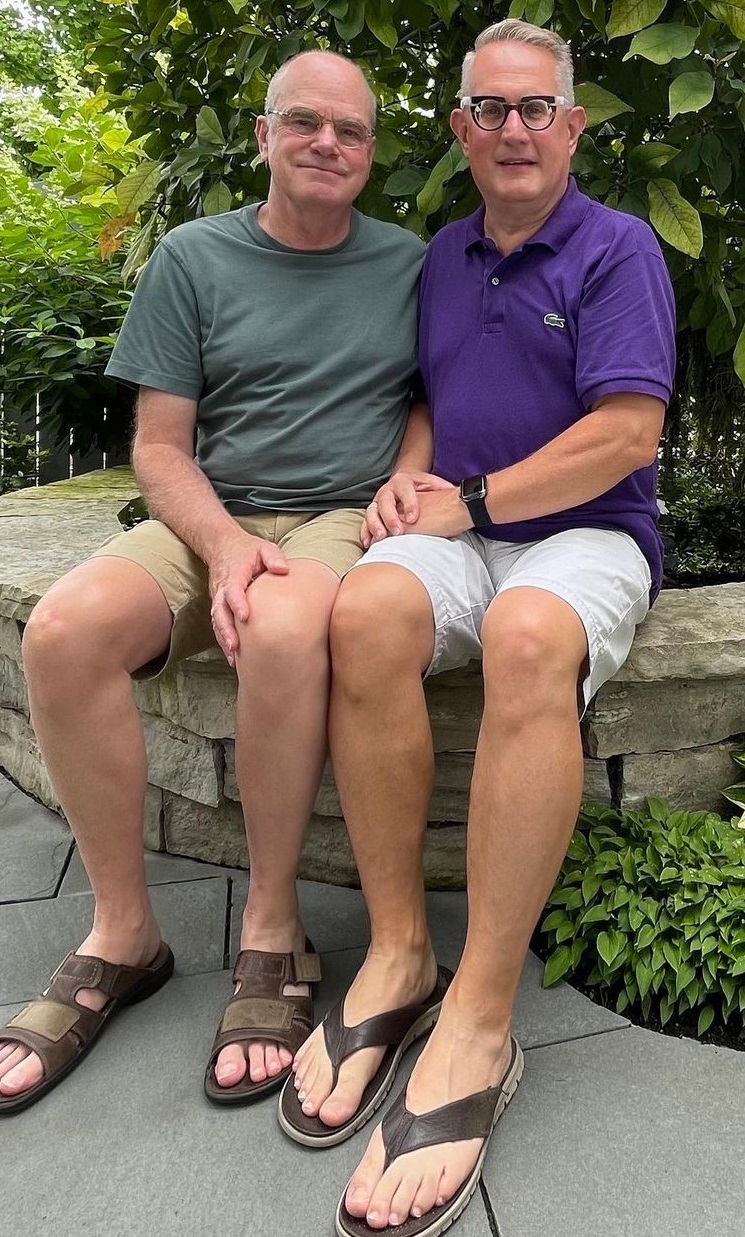
Wikipedia:
Definition of Gay
Video: What Does Gay Mean?
Info: Sexual Orientation
PBS Video: History of the Word Gay
Romeo and Julio
TED Talk: Why Am I So Gay?
Andrew Scott Feels Lucky to Have Been Born Gay
True Definition of Gay
How Gay Came to Mean Homosexual
Info: LGBTQ Community
HuffPost: In Praise of
Visiting the Gay Bar
The price queer youth pay
Brian Mustanski, a professor of medical social sciences
at Northwestern University, cautioned that the relative
success of gay men could amount to a double-edged sword.
“While certainly, it’s good news for the young gay men
that they’re able to succeed well academically, I do
have some real concerns about what kind of pressure
they’re putting on themselves,” he said.
Suggesting that feverish academic striving in search of
validation can come at a steep cost to mental and
physical health, Mustanski pointed to his own research
findings that gay men have disproportionately high
levels of chronic inflammation. He hypothesized that
this physical effect is fueled by minority stress and
that it could raise the risk of health problems such as
cardiovascular disease.
Kirsty A. Clark, a psychiatric epidemiologist at
Vanderbilt University, spoke to the plight of young
lesbians and said “there is strong support” in
scientific literature for Mittleman’s hypothesis that
they incur an academic penalty for flouting gender
norms. She noted that gay women, in particular lesbians
of color, tend to be disproportionately singled out for
school discipline and are overrepresented in juvenile
correctional facilities.
“We need safe and inclusive policies that protect all
students from bullying and differential treatment by
school staff regardless of the student’s sexual
orientation or gender expression,” Clark said. She
called for special support for “those students who may
be most likely to face difficulties in school, including
sexual minority girls.” Clark further called for reform
of zero-tolerance school disciplinary policies, which
disproportionately impact members of minority
demographics, such as lesbians of color.
While joining the other experts in praising what he
called a “beautifully done study,” UCLA psychologist
Patrick Wilson nevertheless expressed concern that
Mittleman’s findings may lead the public to paint
student-achievement trends in overly broad strokes.
Noting what an overwhelmingly unsafe place school still
is for many queer kids, Wilson further cautioned the
public not to conclude, for example, “that a poor Black
gay boy living in Montgomery or Mobile, Alabama,
feminine-presenting and gender-nonconforming, is
actually succeeding in high school right now.”
[Source: Benjamin Ryan, NBC Out, March 2022]
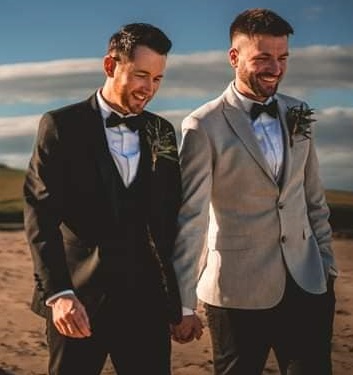
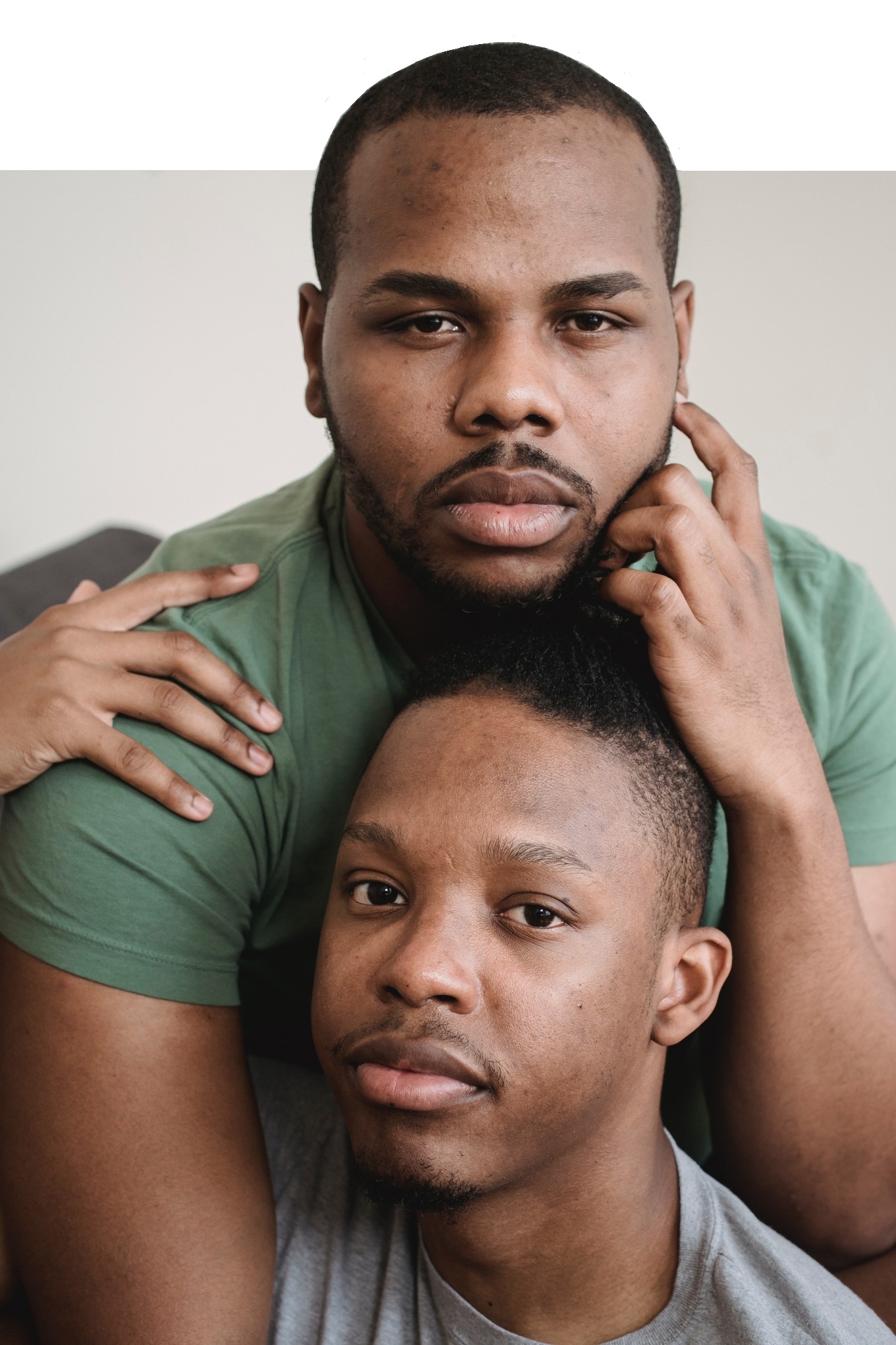
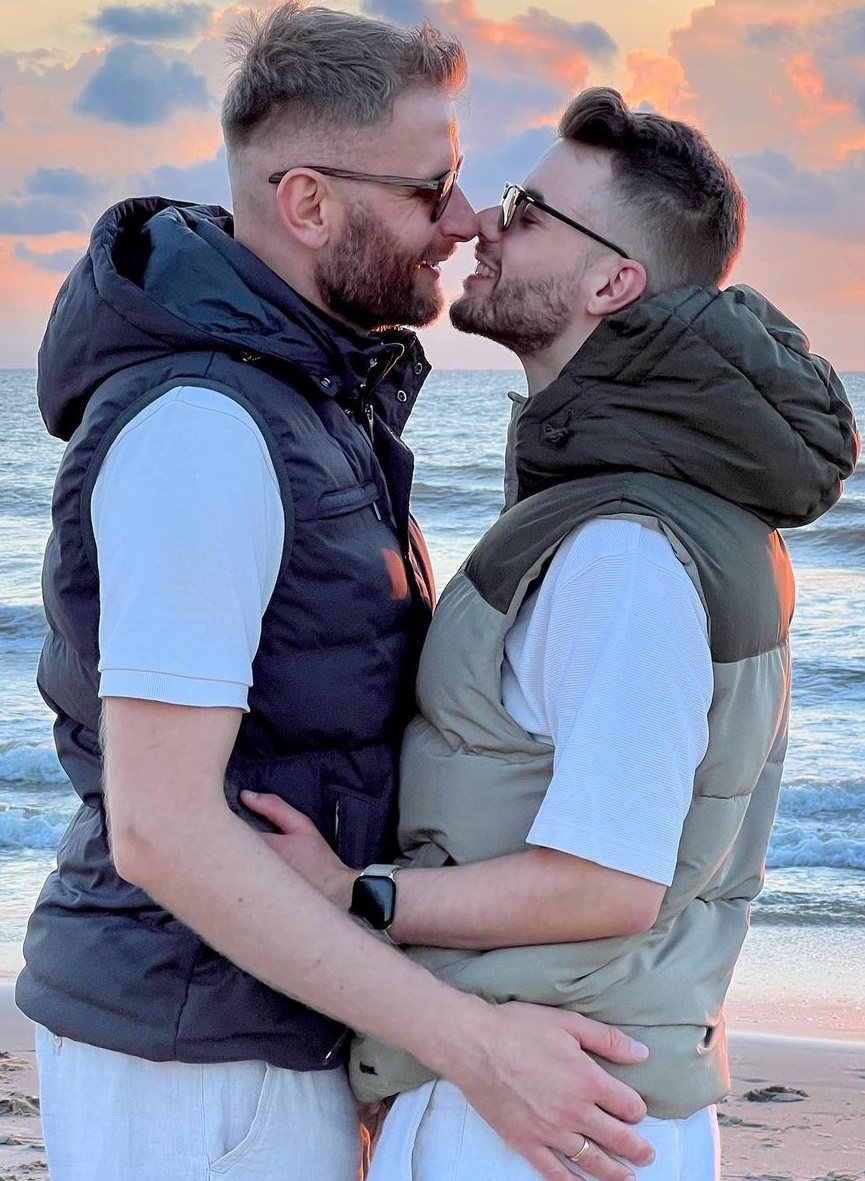
While Straight Men Face Educational Crisis, Gay Men
Excel Academically, Study Finds
Homosexual Men
Info: LGBTQ Community
First Time Gay Stories and Experiences
Video Discussion: Gay Men Describe What it Means to be
Gay
Male Montage: To Love
Somebody
SPLC: Anti-Gay Myths
Debunked
Gay Men Share Sweet, Funny, Relatable Moments They Knew
They Were Fam
Video: Boyfriend Adventure
CDC: Gay and Bisexual
Men's Health
Male Montage: Blame it on the Girls
Gays You'll Date Before You Die
Things Gay and Bi Men Should Never Do in Healthy
Relationships
Queer Kid Stuff: What Does Gay Mean?
Land of Storms: Fine Line
Ray's Coming Out Story
Andrew
Scott: I Feel Lucky to Have Been Born Gay
Andrew Scott has said he “enjoys being gay so much,
on so many levels”, and says he feels “lucky” to have
been born that way.
Speaking about his upcoming film, All of Us Strangers,
the Irish actor said it was an “extraordinary privilege”
to play the character of Adam in Andrew Haigh’s
acclaimed drama. Scott stars alongside Paul Mescal in
the film, which follows screenwriter Adam as he is drawn
back to his family home, where he connects with the
ghosts of his parents, who died in an accident thirty
years earlier. Based on Taichi Yamada’s 1987 novel,
Strangers, the movie explores themes around grief,
coming out and loneliness, as Adam and his neighbor
Harry (Mescal) find solace in each other.
“I wanted to bring as much of myself as I could, because
I feel that’s what the audience is going to relate to
the most,” Scott said, adding playing the role had been
“cathartic”. Another of the themes of All of Us
Strangers is that his character would have grown up in
“the shadow of Aids”, while Harry is younger, meaning
the way they relate to their sexuality is vastly
different.
“I certainly know that the shadow of AIDS was looming
when I was growing up in the nineties,” Scott went on.
“And, of course, that’s going to affect the way we think
about sexuality, in the sense that [we felt we were
being] punished for being physical or for expressing
love.”
 

Andrew Scott: Biographical Notes
Hollywood Reporter Article: Andrew Scott
Andrew Scott: Most Iconic Characters
Scott has
been in films and series for over 2 decades, including
the shows in this partial list... All of Us Strangers,
Fleabag, Victor Frankenstein, Spectre, Pursuit of Love,
Pride, Delinquent Season, Ripley, Sherlock, Hamlet, King
Lear, This Beautiful Fantastic...
The
emancipation from that feeling of shame after the crisis
is “one of the wonderful things” about being gay, the
Fleabag star said. “I enjoy being gay on so many levels,
it’s such a wonderful thing to me. It’s an extraordinary
gift and just to be able to see the real beauty in being
gay is completely wonderful.
“The older I get, the more I feel lucky to have been
born gay, and that pervades my life in the sense of all
my friendships. I have so many amazing queer friends
[who] I just adore.” And when he sees same-sex couples
holding hands on the street, “I’m like a little weirdo.
I’m smiling at them. They’re like: ‘What’s that dude
smiling at us for?’ Because I just think it’s so
wonderful.”



Andrew Scott Feels Lucky to Have Been Born Gay
IMDB:
Andrew Scott
Andrew Scott: Career Breakdown from Fleabag to Sherlock
All of Us Strangers representation of LGBTQ romance is
critical, Scott continued. “When we read positive things
or see representation on screen, when we see ourselves,
we think: ‘Oh, well, we can forge a way in the world’.
That’s why a movie like this is so important, because
it’s incredibly compassionate and tender, but it also
doesn’t erase the fact that it’s painful and it can be
lonely being gay.
“There’s a certain thorny path that we all have to go to
in order to find love, not just in another person, but
in ourselves.” Scott also believes the phrase “openly
gay” should be retired for good, and replaced with the
word “out”, with the former phrase making him “uneasy
about what it implies”. He explained: “I do
understand that historically we need a word to recognize
the fact that there are sometimes people who are gay,
but, for whatever reason, aren’t able to be open about
it. I totally get that. And so, I just feel the word
‘out’ does that. It’s simpler. It does the job, with
less implications.”
[Source: Emily Chudy, Pink News, Jan 2024]
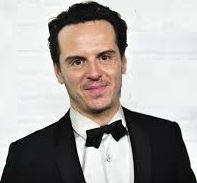
Research: Unique Stressors for Gay Men
True Definition of Gay
78-Year-Old Man and 13-Year-Old Boy Talk About Being Gay
Steve's Coming Out Story
HRC: Responding to Children's Questions About LGBTQ
Issues
Video Talk: Dating is Difficult for a Gay Guy
He's Not My Boyfriend
First Time Gay Stories and Experiences
Awareness Advocacy
Project: What
Does Gay Mean?
LGBTQ People are Marvels
Info: Sexual Orientation
Achillean
The term
"gay" is used as an adjective to describe homosexuality,
and is also often used by the entire LGBTQ community in
general. For this reason, various proposed terms for
homosexual men were coined. Some individuals also argue
that "gay" should just mean homosexual men all together,
due to the fact that homosexual women are referred to as
lesbian. Other people simply refer to homosexual men as
"gay men."
However,
if gay women are called lesbians (or sapphic), what are
gay men called? Do they have a special moniker
inspired by an historical or mythical figure?
Achillean
- The ancient Greek hero Achilles (of Trojan War fame
from Homer's Iliad) was known for having male lovers. He
is often regarded as the male counterpart to Sappho
(from the Island of Lesbos). So, "Achillean" is an
example of a term that can be exclusively applied to gay
men.
"Achillean" is most commonly used as an umbrella term
for men who love men (MLM) in the same way that
"Sapphic" is used as an umbrella term for women who love
women (WLW).
The
Achillean flag includes the image of a carnation, which
is a reference to Oscar Wilde.
In the
same way that the
feminine moniker is "sapphic" and the male moniker is "achillean,"
the
non-binary counterparts are "diamoric" and "enbian."
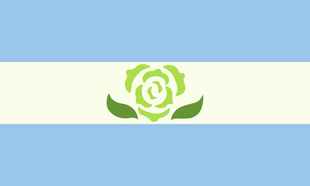
Other
terms for gay men, male-aligned men, or men who love men
include the following:
Vincian
- The term "Vincian" was coined in honor of Leonardo da
Vinci, who was an Italian polymath of the Renaissance.
He was thought to be involved in various homosexual
relationships, although no one can prove it. He is most
famous for his painting of Mona Lisa.
Wildean
- The term "Wildean" was coined in honor of Oscar Wilde,
an important figure in LGBTQ history. Wildean is also
used as an adjective to describe things connected to
Oscar Wilde.
Cinthean
- The term "Cinthean" is pulled from the Greek myth of
Hyacinthius and Apollo.
Apollonian
- The term "Apollonian" is pulled from the Greek myth of
Hyacinthius and Apollo.
Patroclian
- The term "Patroclian" comes from the Greek story of
Patroclus, who was thought to be a romantic partner of
Achilles.
Floric
- The term "Floric" is named after Florence, the
birthplace of Leonardo Da Vinci, who is the namesake of
Vincian.
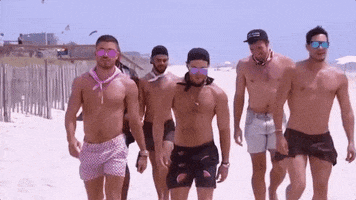
Wikipedia:
Definition of Gay
Video: What Does Gay Mean?
100 Gay Things To Do Before You Die
Somebody to Love
Handsome Man by Matt Alber
Research: Unique Stressors for Gay Men
Kang Guk and Tae Joo: Take
Me Apart
Gay Men's Health and
Identity: Social Change and Life Course
Alex and Winston: Someone
You Loved
Johns Hopkins: Gay and Bisexual Men's Health Issues
Advocate: The Gay
Moustache
Kang Guk and Tae Joo: Take
Me Apart
Info: Sexual Orientation
TED Talk: Why Am I So Gay?
Male Montage: Trouble
Makers
In Praise of
Visiting the Gay Bar
The first
time I stepped inside a gay bar was also the first time
I kissed a man. I was 19 years old and the bar was in
the conservative bastion of Colorado Springs. Like many
gay bars in the early 1980’s, it was a non-descript
building with blacked-out windows and perched on the
edge of town; the city’s dirty little secret. The bar,
like the kiss, was a thrill I would not experience again
for more than 20 years.
I was working as a tour guide at “The Lost Gold Mine” in
Central City and living with my lesbian aunt and her
psychic girlfriend in the summer of 1982. There are
stories I have yet to tell my mother about that night.
The way I lied about my age to the bartender and became
drunk on vodka tonics. How Donna Summer, Tina Turner and
Diana Ross (or their drag queen look-alikes) coaxed me
up on stage and showered me with glittery hugs. And the
moment I stumbled out of the bar with a handsome young
guy and experienced that first kiss beneath the shadow
of Pike’s Peak. The bar was like a beautiful island of
misfit toys and I belonged.
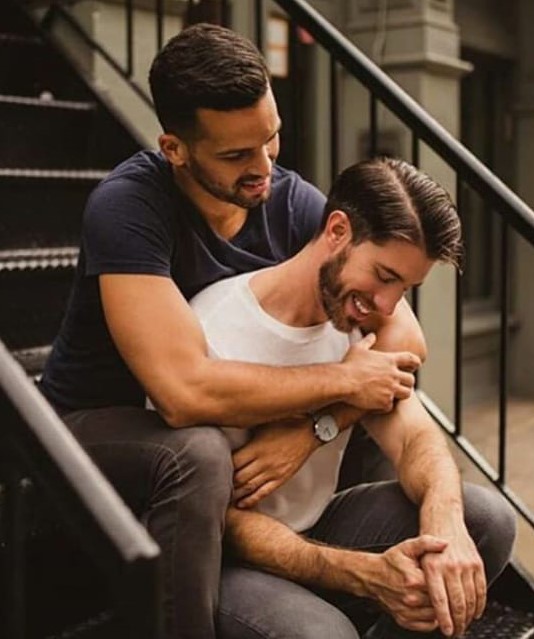
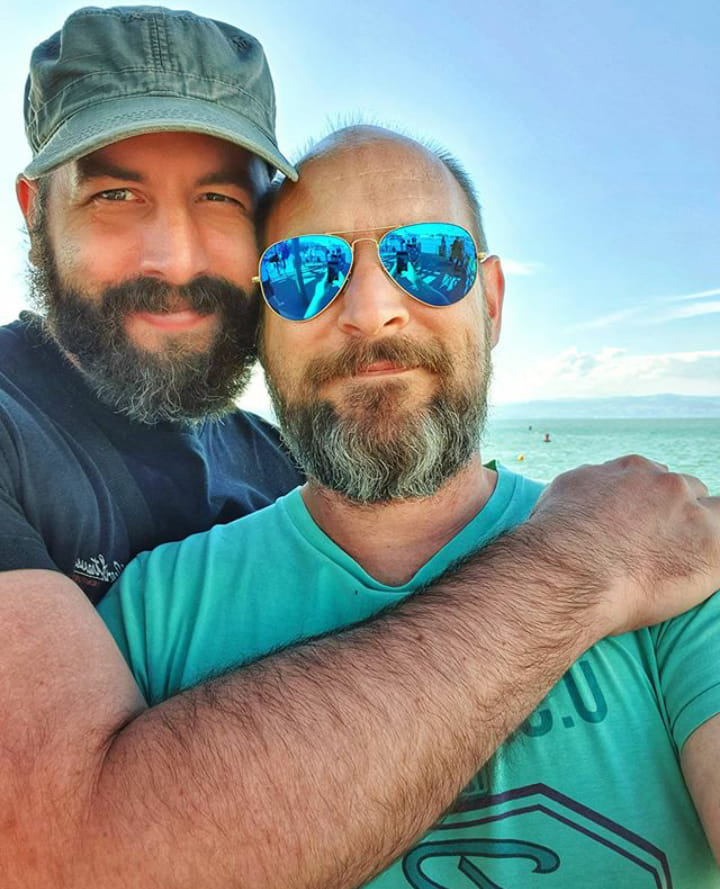
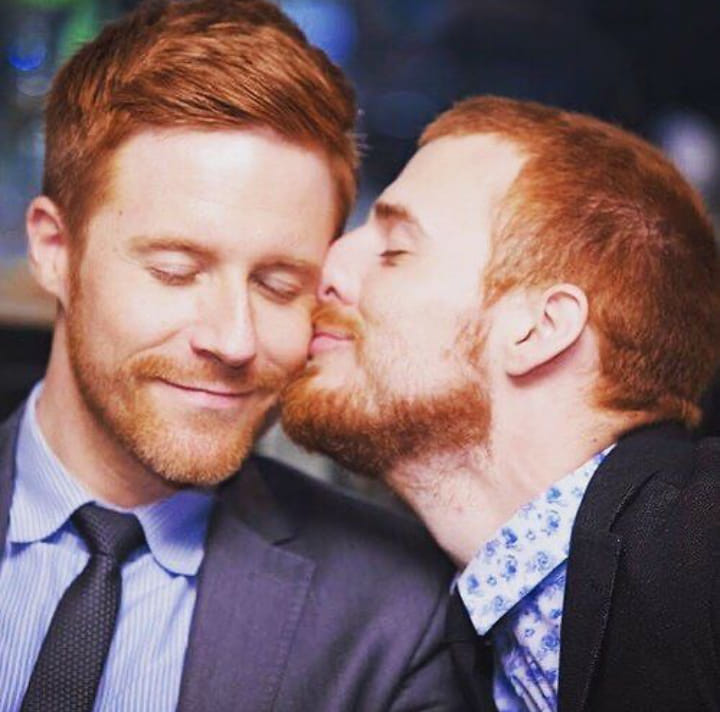
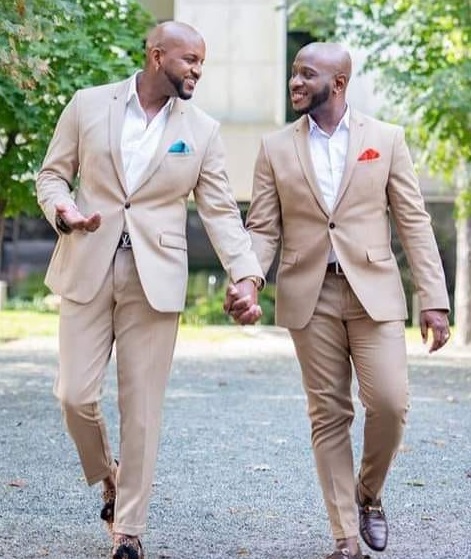
Homosexual Men
Info: LGBTQ Community
First Time Gay Stories and Experiences
Video Discussion: Gay Men Describe What it Means to be
Gay
Male Montage: To Love
Somebody
SPLC: Anti-Gay Myths
Debunked
Video: Boyfriend Adventure
CDC: Gay and Bisexual
Men's Health
Male Montage: Blame it on the Girls
Land of Storms: Fine Line
Ray's Coming Out Story
When I
returned home to North Carolina, which was also when I
retreated back into the closet, I boarded up those
stories and stowed them away, but I never forgot them.
More than 20 years later, when I was in my 40s and
living in Boston, I came out for the second time and
ventured once again into a gay bar.
Fritz was a gay sports bar in the trendy South End of
Boston and not at all like my first experience. While
the ceiling was painted black, the ample sized windows
were not. I strolled past them multiple times peeking
inside, summoning up the courage to open the door. When
I entered, there were a dozen or so guys dressed in work
attire, half of them watching a baseball game on the TV
screen above the bar and the other half checking out the
new arrivals. There was no need to lie about my age, as
my greying hair gave that secret away. I didn’t dance
with any drag queens or get kissed beneath the silvery
moon, but I did experience the tiny thrill that I get to
this day when I walk into a gay bar, and I have visited
many.
I’ve danced with a New Zealand landscape designer at DJ
Station in Bangkok, chatted with an ice-cream truck
driver at The Admiral Duncan in the Soho neighborhood of
London, flirted with a waiter at Harvey’s in the Castro,
talked to some regulars at The Stonewall Inn in
Greenwich Village, partied like a celebrity at The Abbey
in West Hollywood and had more fun nights than I can
count on two hands at Mainestreet and The Front Porch in
Ogunquit, Maine and Club Café in Boston.
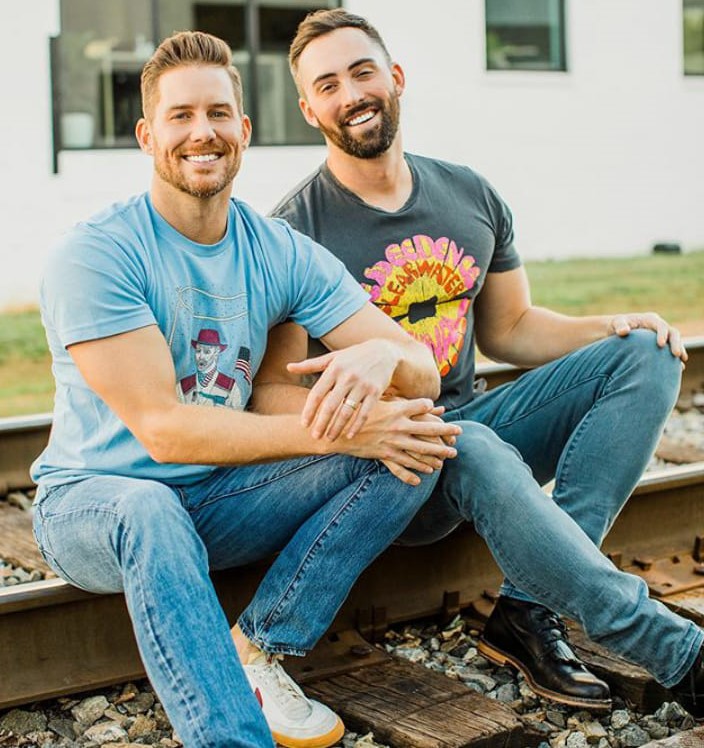
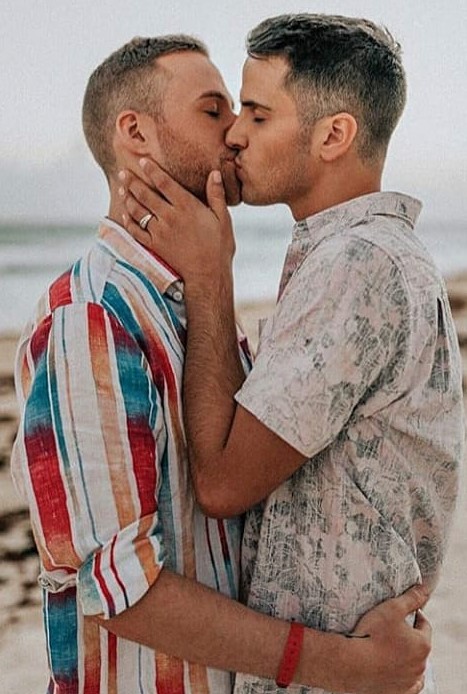
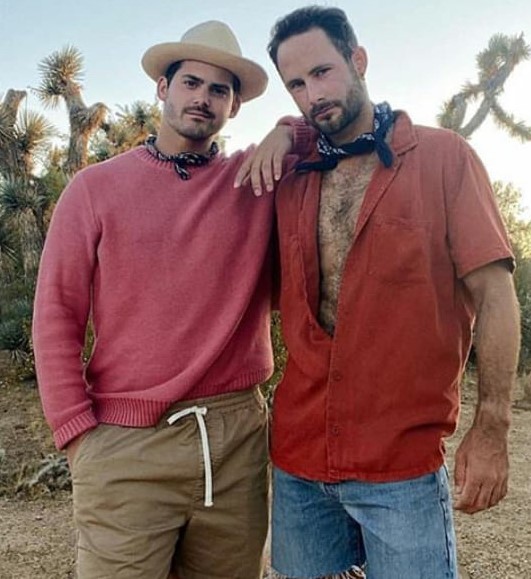
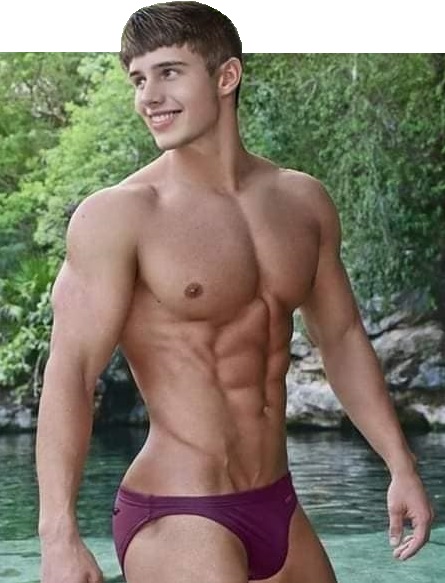
Gay Men's Health and
Identity: Social Change and Life Course
Video Documentary: The Gay Word
PBS Video: History of the Word Gay
Michael and Ben
True Definition of Gay
Video Discussion: Gay Men Describe What it Means to be
Gay
Francis and Nicholas
Gay
Man Thriving
Advocate: Gay Men Photo
Feature
Gay Men Share Sweet, Funny, Relatable Moments They Knew
They Were Fam
Video: What Does Gay Mean?
First Time Gay Stories and Experiences
One night,
I overheard a guy in his 20s lament to his gaggle of
friends “Ugh, if I’m still coming here when I’m in my
30s, somebody slap me.” I wanted to deliver a
pre-emptive strike. Anyone in their 30’s, 40’s, 50’s,
60’s, 70’s or 80’s who is still able to visit a gay bar,
should consider himself lucky.
I’m in my 50s now and I still venture out to a gay bar
now and then, the last time was with my youngest
daughter, Marisa who is in her 20s. I watched her get
coaxed up onto the stage and dance with Tramplina, a 6
foot two tall drag queen. I couldn’t help but laugh and
see my younger self. I’m not attempting to relive my
youth, as much as I am reclaiming what was stolen.
I’ll continue to go to gay bars until either one of us
ceases to exist. I’ve heard that they are not necessary
now that we’ve become main-stream or that they are too
shallow and I have also read that insipid article about
how gay men in their 40s should grow up and not go to
gay clubs. I have three responses: 1) Being main-stream
is overrated; 2) You get out of life what you put into
it and 3) a quote from Maurice Chevalier “You don’t stop
laughing because you grow older. You grow older because
you stop laughing.”
The modern
day fight for LGBTQ rights began in a bar and there was
a generation who fought for those rights but did not
live long enough to see them come to fruition. The least
I can do is raise a glass to them every now and then and
perhaps under the disco lights, steal a kiss from my
husband.
[Source: William Dameron, The Authentic Life, March
2017]
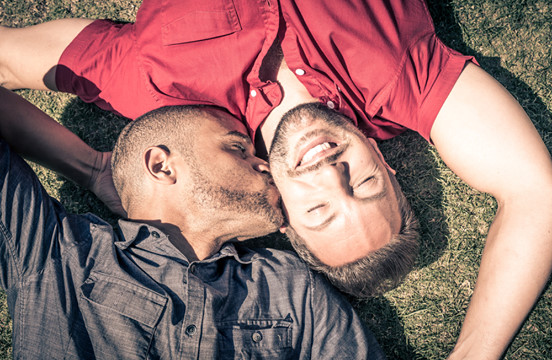
HuffPost: In Praise of
Visiting the Gay Bar
Male Montage: Trouble
Makers
Video: Hottest Openly Gay Male Celebrities
Michael and Ben
Things Gay and Bi Men Should Never Do in Healthy Relationships
Gay Story: How I Met the Love of My Life
Your Song: My Love My Life
Land of Storms: Fine Line
For Anyone
Who's Been Told It's Just a Phase
He's Not My Boyfriend
Johns Hopkins: Gay and Bisexual Men's Health Issues
Gay
Man Thriving
Awareness Advocacy
Project: What
Does Gay Mean?
All in the Family: Archie Meets a Gay Guy
Male Montage: To Love
Somebody
Talking With
Kids: What Does Gay Mean?
There is not one right answer.
Many people have grown up without hearing the words
“gay” or “lesbian.” Therefore, you may not be sure how
to respond when a student asks you what they mean. It is
better to try to answer than to respond with silence or
evade the question. Practice different responses with
colleagues, just as you practice other things that you
want to learn. Figure out what you feel comfortable
saying. Responses will vary by age and developmental
stage of the student. Your comfort in answering these
questions will set a welcoming tone in your class and
school community.
Keep it simple.
An answer can be as simple as saying that "gay" means
"when a man loves a man or when a woman loves a woman."
Try to answer the question honestly without overloading
a student with information. Throughout elementary school
a student’s ability to understand what “gay” means and
what your explanation means may increase with
development.
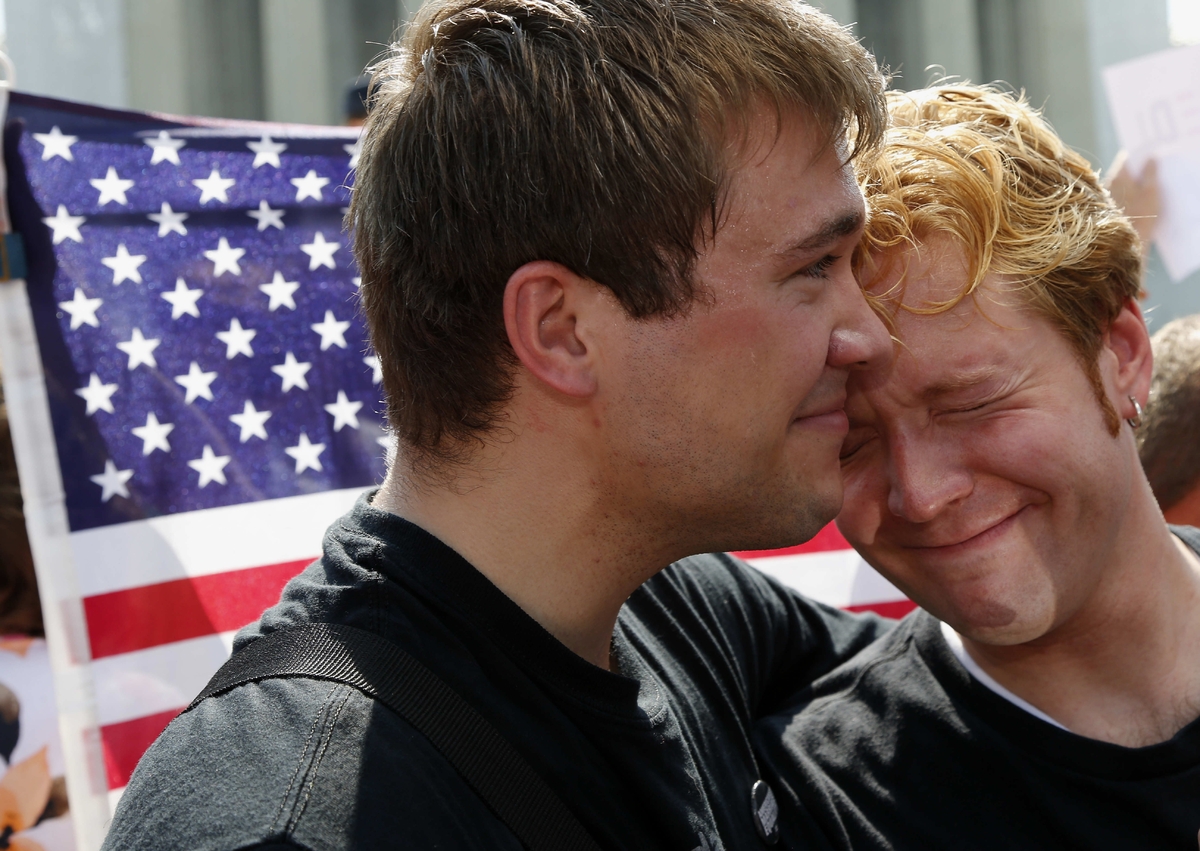
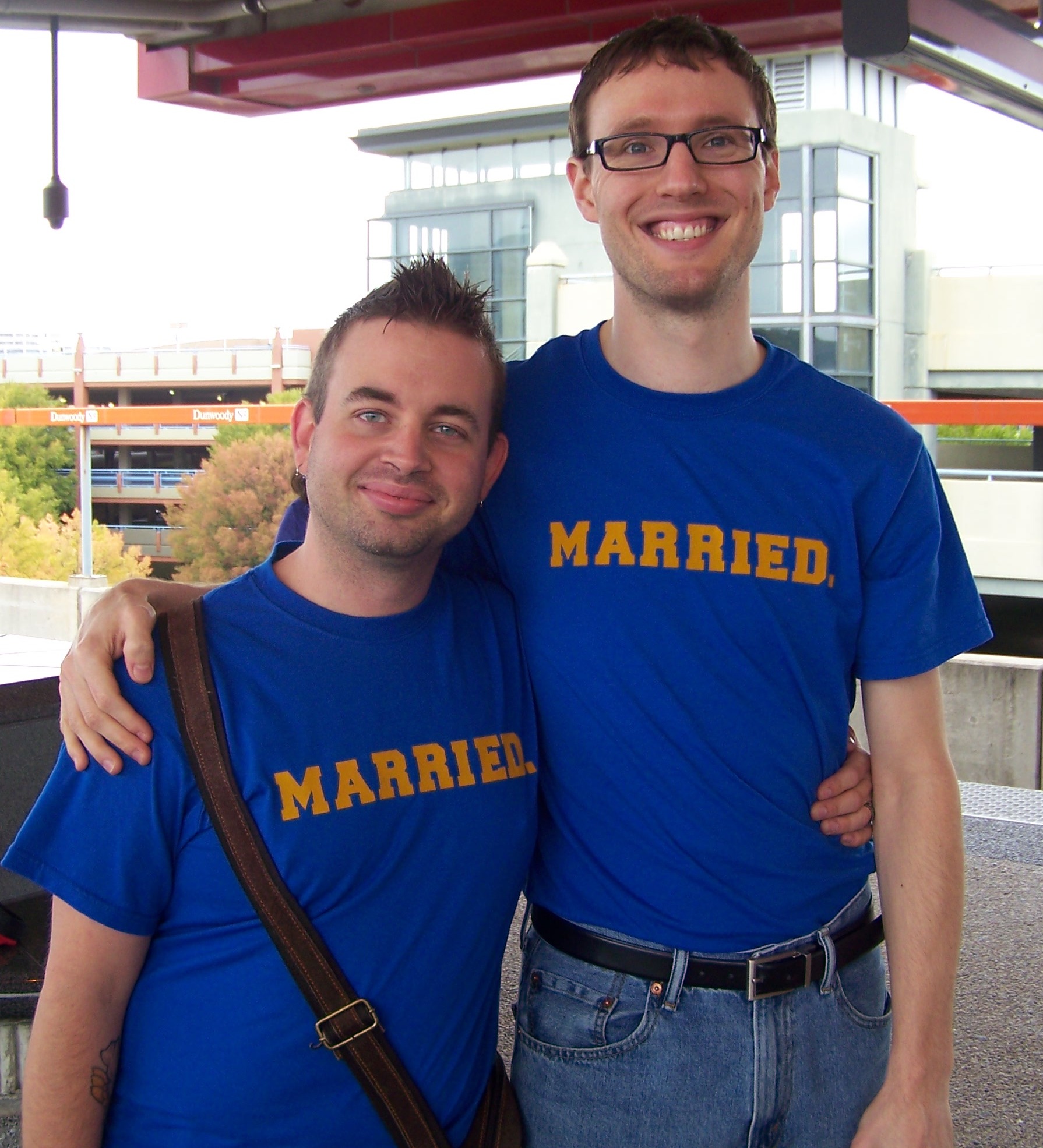
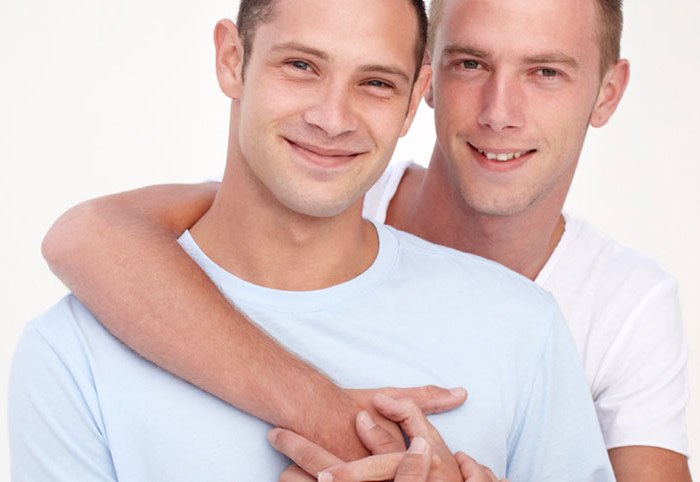
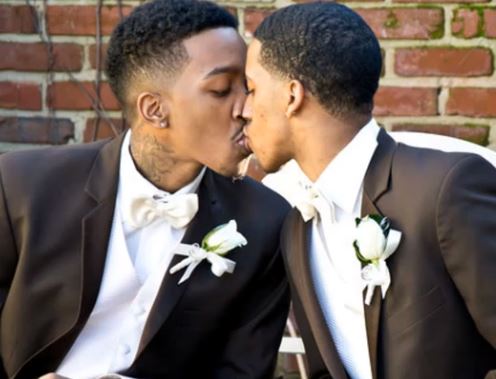
Focus on love and relationships.
A discussion with elementary-age students about the
meanings of “gay” or “lesbian” is a discussion about
love and relationships. You can just clarify that people
love each other in different ways. Some women love and
want to be partners with a man and some women love and
want to be partners with a woman. It can be helpful to
give concrete examples, such as “Tanya and Angela love
each other, and they want to be family to each other.”
Understand what the student is asking.
If a second-grader says to you, “Alexia said that
Ricardo is gay. What does gay mean?” You could
begin with, “Do you know why Alexia said that?” Or a
student could say, “I heard that Omar’s dad is gay. What
does that mean?” Listening first gives you a good idea
of what your student wants to know and needs to know.
Will your answer be about name-calling, defining what it
means to be gay, different kinds of families, or some
combination of answers?
TED Talk: Why Am I So Gay?
True Definition of Gay
78-Year-Old Man and 13-Year-Old Boy Talk About Being Gay
How Gay Came to Mean Homosexual
Advocate: Gay Men Photo
Feature
Gays You'll Date Before You Die
Video Discussion: Gay Men Describe What it Means to be
Gay
Wikipedia:
Definition of Gay
Video: What Does Gay Mean?
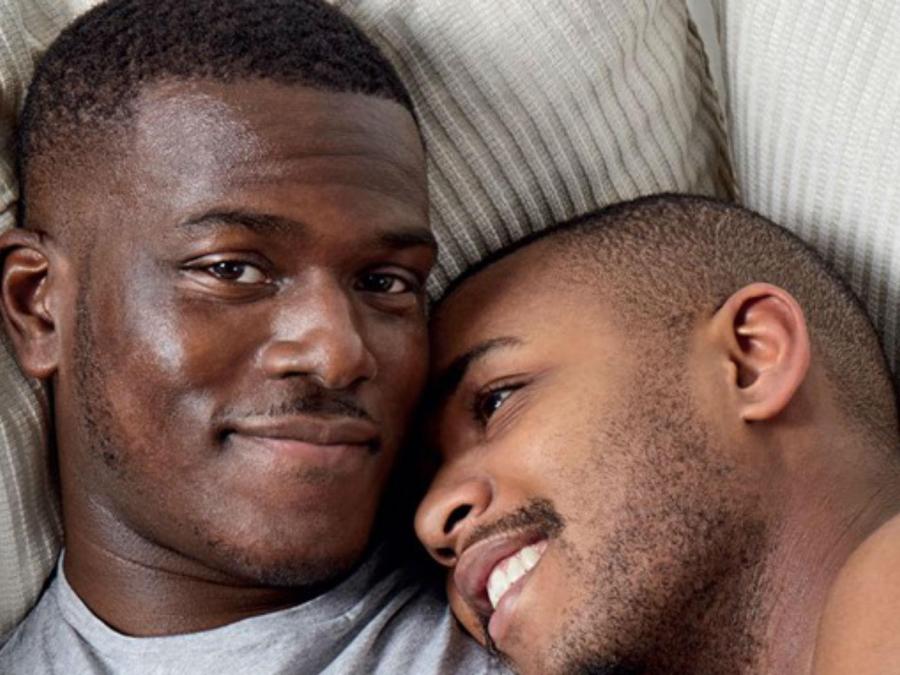
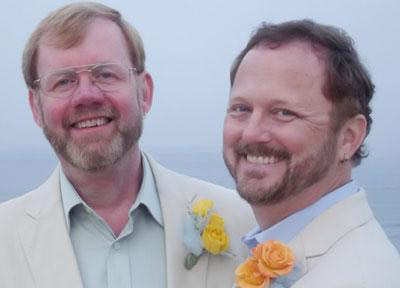
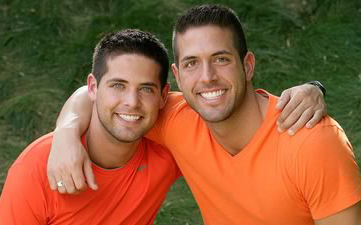
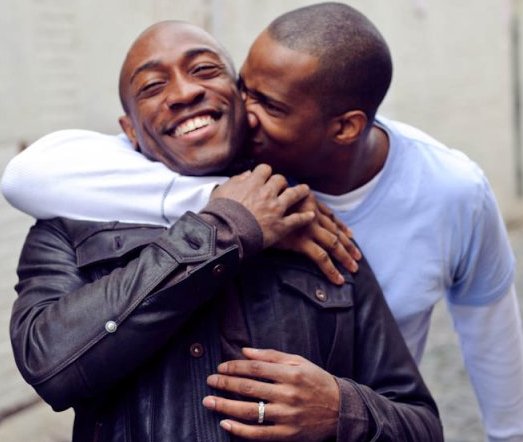
Think about what messages you want to share.
--All people deserve respect.
--Making fun of people by calling them “gay” (or “sissy”
or “queer”) is hurtful. It can hurt both the student who
is targeted and anyone who hears it who may have a gay
relative or friend.
--Using the name of any group of people as an insult is
not OK, because it is most often based on negative
stereotypes.
--People can fall in love and want to be in a
relationship with people of the same gender or with
people of a different gender.
Sample responses.
--A gay person is someone who loves someone who is the
same gender.
--A gay
person is someone who cares about and is affectionate
with someone who is the same gender.
--A gay person is someone who is in a committed romantic
relationship with someone who is the same gender.
--The word
"gay" describes a man and a man or a woman and a woman
who love each other.
--It describes a boy who wants to have a boyfriend or a
girl who wants to have a girlfriend.
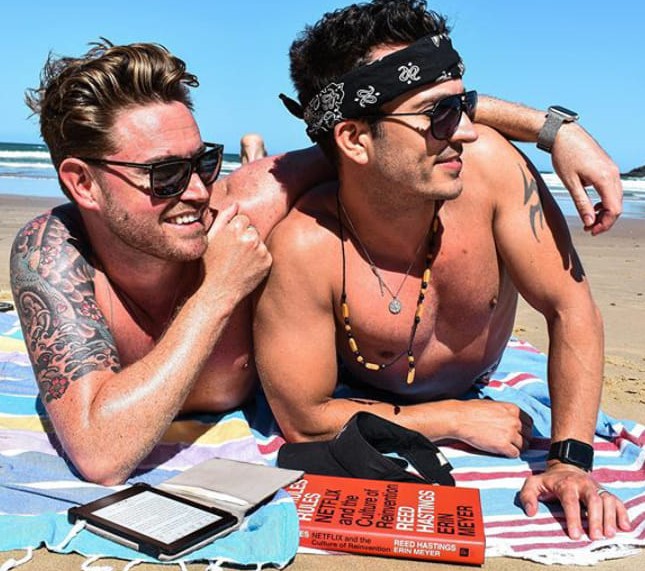
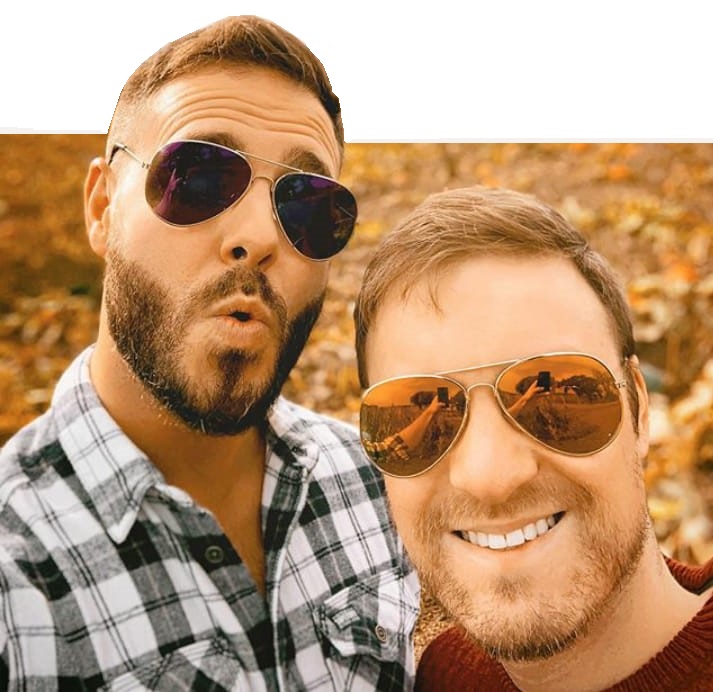

Wikipedia:
Definition of Gay
Video: What Does Gay Mean?
100 Gay Things To Do Before You Die
Alex and Winston: Someone
You Loved
Johns Hopkins: Gay and Bisexual Men's Health Issues
Advocate: The Gay
Moustache
Kang Guk and Tae Joo: Take
Me Apart
Info: Sexual Orientation
For Anyone Who's Been Told It's Just a Phase
PBS Video: History of the Word Gay
Gay Movie Montage: Colour Me In
Perfect: My Love My Life
Wikipedia: Homosexuality
Gay Men and
Sexual Promiscuity
A 2020
study reports that women tend to keep their distance
from gay men described as sexually promiscuous. New
research suggests that sexual promiscuity negatively
impacts social responses toward both gay and straight
men. The study, published in the journal Psychology of
Men & Masculinities, found that women are more likely to
seek to avoid gay men described as promiscuous compared
to gay men who are not described as promiscuous.
“Perceptions of masculinity, and stereotypes toward gay
men, are multifaceted,” said study author Corey Cook, an
assistant professor of psychology at Pacific Lutheran
University. “I was interested in knowing what happens
when some of these perceptions overlap; for example,
does perceived sexual promiscuity (which is associated
with traditional ideas of masculinity, but also used as
a justification for antigay prejudice) affect
perceptions of gay and straight men similarly? These
kinds of comparisons can help us understand where these
prejudices come from, and hopefully help us find ways to
reduce them.”
In the study, 354 heterosexual undergraduate students
were randomly assigned to report their social attitudes
towards either gay men, straight men, gay men who are
sexually promiscuous, straight men who are sexually
promiscuous, gay men with very feminine qualities,
straight men with very feminine qualities, gay men with
very masculine qualities, or straight men with very
masculine qualities.
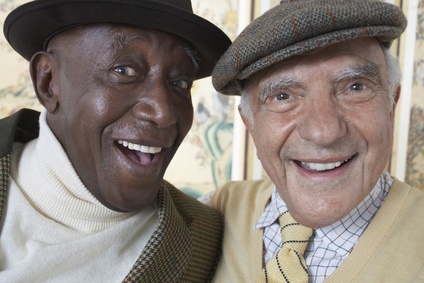
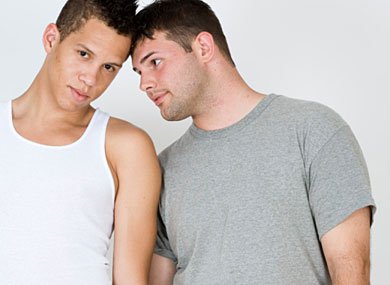
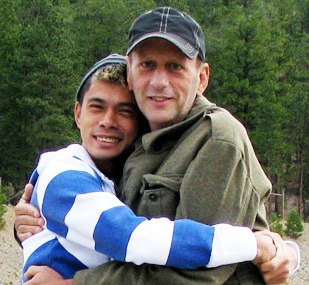
To assess their attitudes, the participants were asked
how strongly they agreed or disagreed with statements
such as “I would like for a member of this group to work
in the same place as I do” and “Members of this group
are the kind of people that I tend to avoid.” The
researchers found that both female and male participants
reported greater social distancing toward gay men than
toward straight men. Women also reported greater social
distancing toward sexually promiscuous gay men than gay
men in general. Men, however, showed no difference in
attitude between sexually promiscuous gay men and gay
men in general
In addition, Cook and his colleagues found that women
reported greater social distancing toward sexually
promiscuous straight men compared to all other groups.
“One important implication of this research is that
attitudes based on sexual behavior can be more nuanced
than we often think. Research consistently finds that
heterosexual women are generally more accepting of gay
men than heterosexual men are. My findings suggest that
this is not the case when gay men are explicitly labeled
as sexually promiscuous,” Cook said.
“Additionally, heterosexual women and men respond
negatively toward straight men labeled as sexually
promiscuous. This is interesting because heterosexual
men have traditionally used ‘sexual prowess’ as a way to
boost their status; my research suggests that this
tactic might not work as well as men think.”
Gay Men's Health and
Identity: Social Change and Life Course
Video Documentary: The Gay Word
Things Gay and Bi Men Should Never Do in Healthy
Relationships
PBS Video: History of the Word Gay
Michael and Ben
Gay Story: How I Met the Love of My Life
True Definition of Gay
Video Discussion: Gay Men Describe What it Means to be
Gay
Francis and Nicholas
Gay
Man Thriving
First Time Gay Stories and Experiences
Advocate: Gay Men Photo
Feature
Video: What Does Gay Mean?
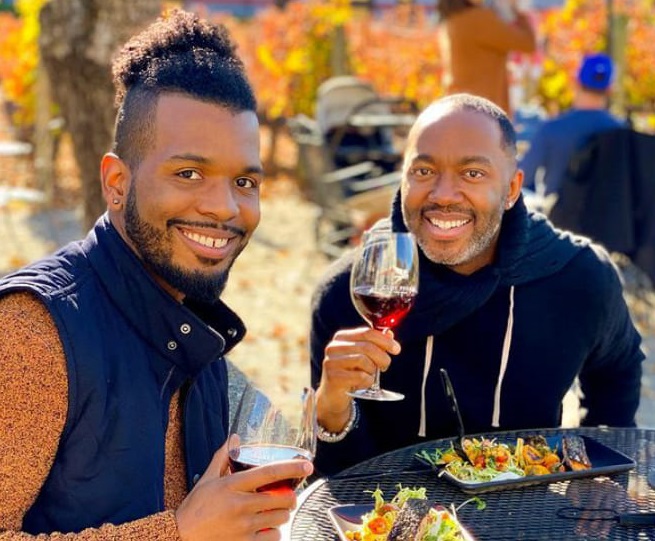
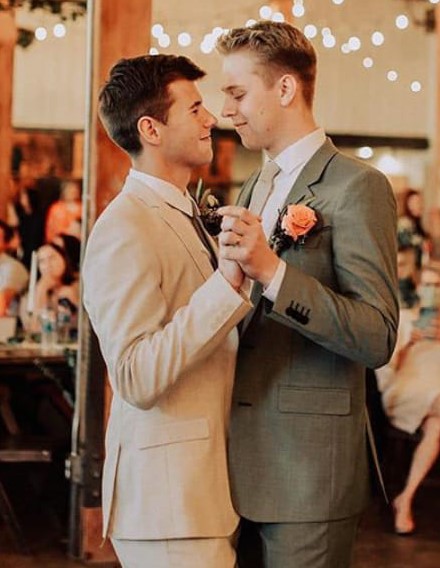
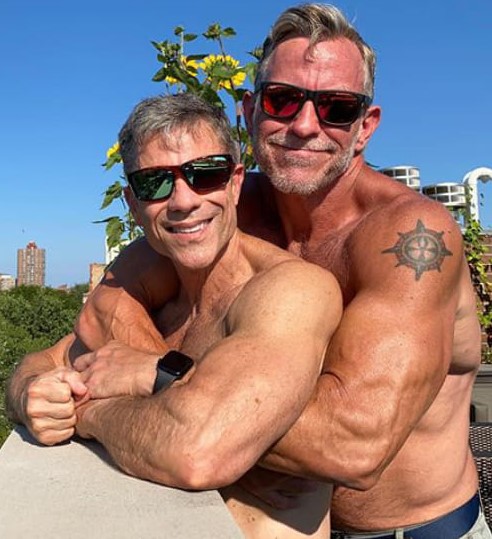
In a second experiment with 500 participants recruited
via Amazon’s Mechanical Turk, the researchers found
evidence that women’s negativity toward sexually
promiscuous gay men was related to concern for disease
threats. But perceived disease threat only explained
some of the relationship. “One major caveat to these
findings is that our data do not fully explain why women
responded so negatively toward targets labeled as
sexually promiscuous. What is it about sexual
promiscuity that elicited such negative reactions from
women in our studies?” Cook said.
“Also, what perpetuates this “masculine” norm among men
if both men and women respond negatively to sexual
promiscuity? I hope my findings are interesting enough
to motivate other researchers to explore these questions
in ways I haven’t yet thought of.”
“I think the timing of this research is fortuitous. We
are at a point culturally when people are beginning to
ask very important questions about traditional ideas of
gender, sex, and sexuality. Maybe findings such as these
can help us think of ways to redefine masculinity and
help us find healthier ways of perceiving sexuality,”
Cook added.
The study, “You Don’t Know Where He’s Been: Sexual
Promiscuity Negatively Affects Responses Toward Both Gay
and Straight Men“, was authored by Corey L. Cook and
Catherine A. Cottrell.
[Source:
Eric W. Dolan, Psy Post, July 2020]
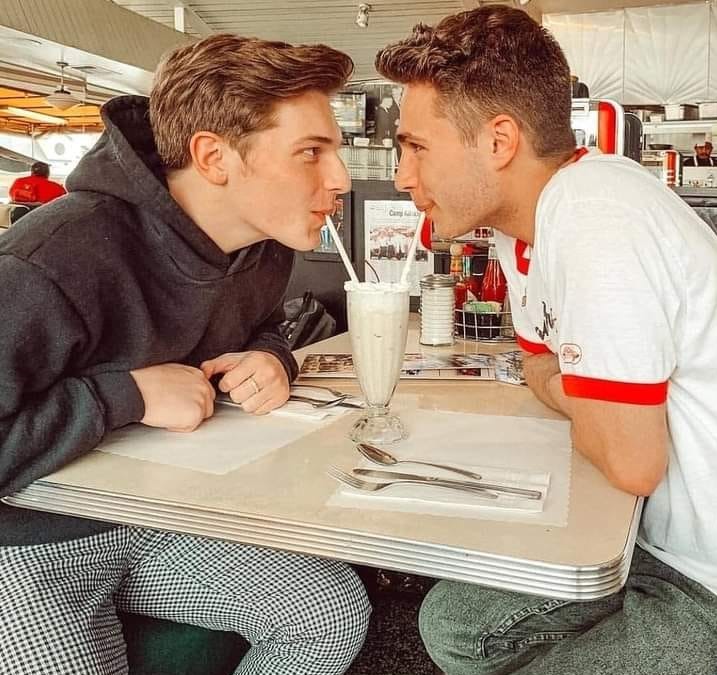
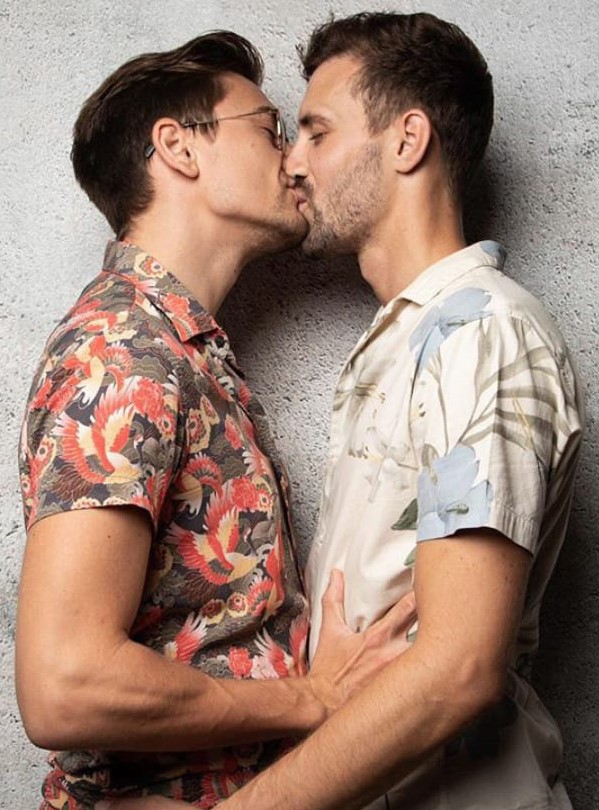
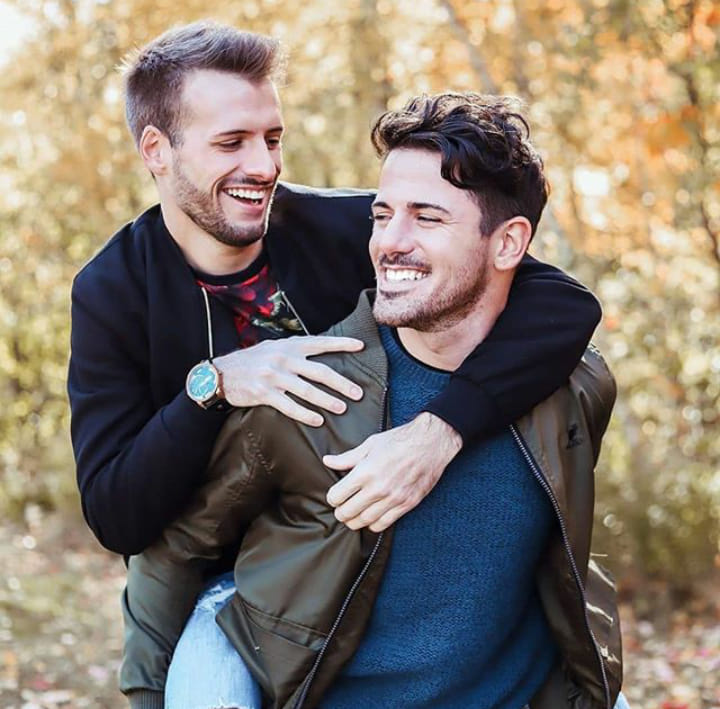
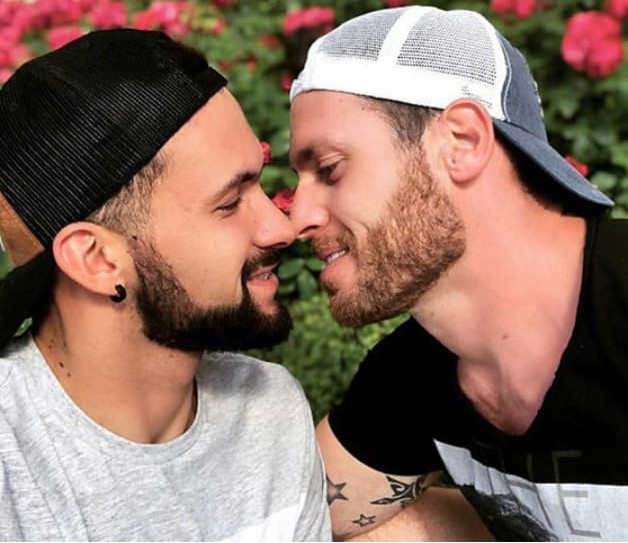
TED Talk: Why Am I So Gay?
Male Montage: Trouble
Makers
Gay Men's Health and
Identity: Social Change and Life Course
Video Documentary: The Gay Word
Gay Men Share Sweet, Funny, Relatable Moments They Knew
They Were Fam
PBS Video: History of the Word Gay
Michael and Ben
True Definition of Gay
Video Discussion: Gay Men Describe What it Means to be
Gay
Francis and Nicholas
Gay
Man Thriving
Superior Gay
Brains
Actor Lisa
Kudrow, of Friends fame and other television and
film projects, has a Bachelor of Science degree in
Biology from Vassar College. So she is smarter in real
life than the Phoebe character she played on the
Friends TV show. She has a biological theory
about gay men in general, based on some semi-scientific
data.
“I don't know who I'm going to offend by leaving anybody
out, but I need to say that I think gay men are superior
beings in my mind. I do believe that. It's all so
tricky. I studied biology. And their brains are
anatomically different. They just are. There's a
stronger connection with the corpus callosum in gay men.
The two sides of the brain communicate better than a
straight men's brains. And I think that has to be really
important. I think those qualities make them like
superhuman to me."
[Source: Lisa Kudrow, Vanity Fair, Oct 2014]
PsyPost: Gay Men and Sexual Promiscuity
NIH Report: Effects of Masculine Ideals on Gay Men
Gay Movie Montage: Colour Me In
Accepting Yourself: Being
Gay is Not Easy
Gay Love
For Anyone Who's Been Told It's Just a Phase
Male Montage: To Love
Somebody
Video Talk: Dating is Difficult for a Gay Guy
Advocate: Gay Men Photo
Feature
Homosexual Men
How Gay Came to Mean Homosexual
CDC: Gay and Bisexual
Men's Health
Info: LGBTQ Community
Somebody to Love
Gay Guyde: What Does Gay Mean?
What's Good
About Being Gay
In
reviewing the data collected from research related to
male youths’ conceptualizations of being gay/bisexual
revealed two major categories: Positive personal
conceptualizations of being gay/bisexual. And resiliency
in the face of gay-related oppression. Here is a
sampling of comments from the participants who were
interviewed for the research project.
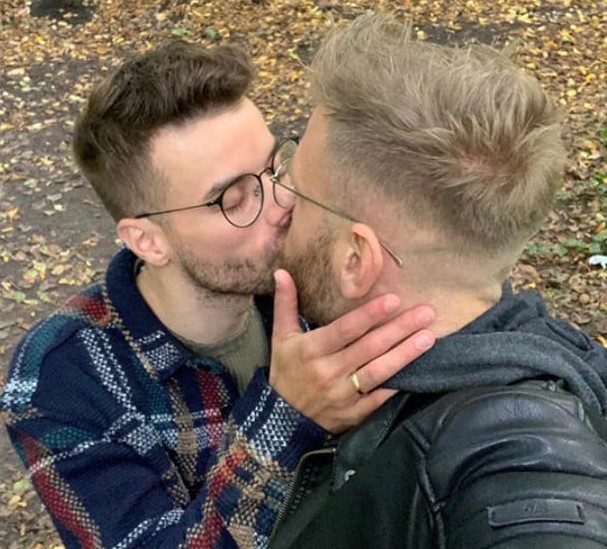
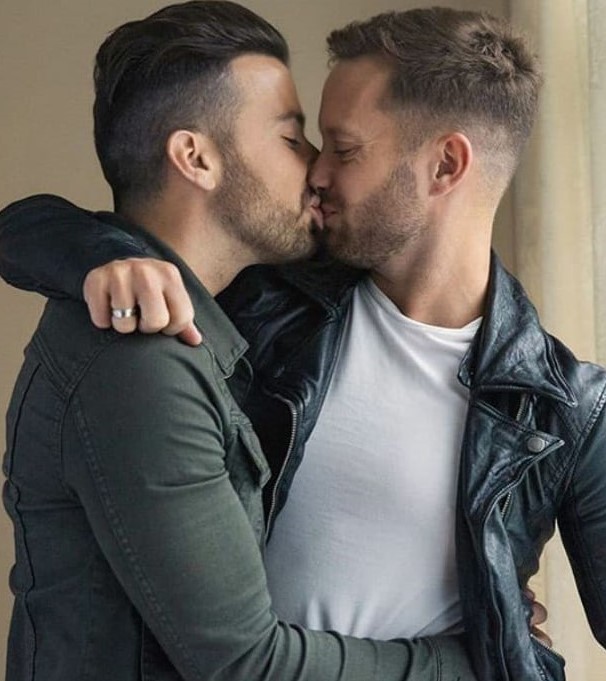
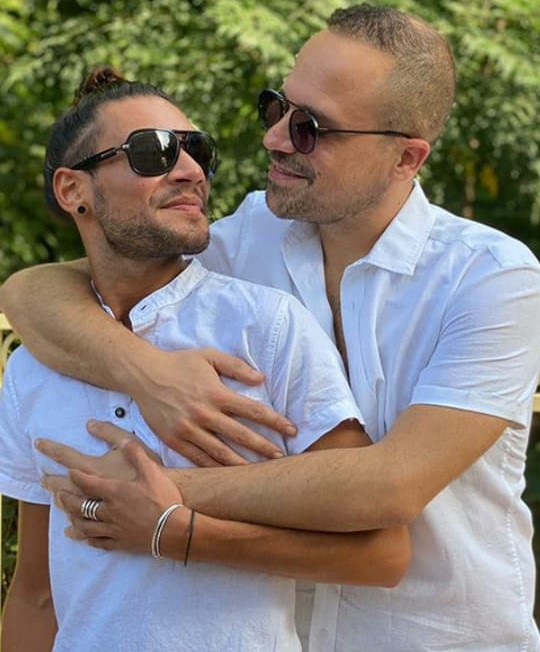
Positive Personal Conceptualizations of Being
Gay/Bisexual
On the basis of the research, the two themes identified
as positive personal conceptualizations of being
gay/bisexual were flexibility and connectedness.
Um, positive things? Hum. I don't know. I get to like
girls and boys, I guess. Um, I have to classify, I
really have a problem with classifying myself. Like
that's really an issue with me. I don't like to be
classified as one thing, because then it doesn't really
make you who you are. It's kind of this blending with
the rest of the people.
(Justin,
18 year old, multi-racial bisexual male)
In this aspect, the participant gained strength from
resisting stereotypes associated with sexual orientation
classification. He felt that by not identifying as gay
or straight, he was able to be himself around others.
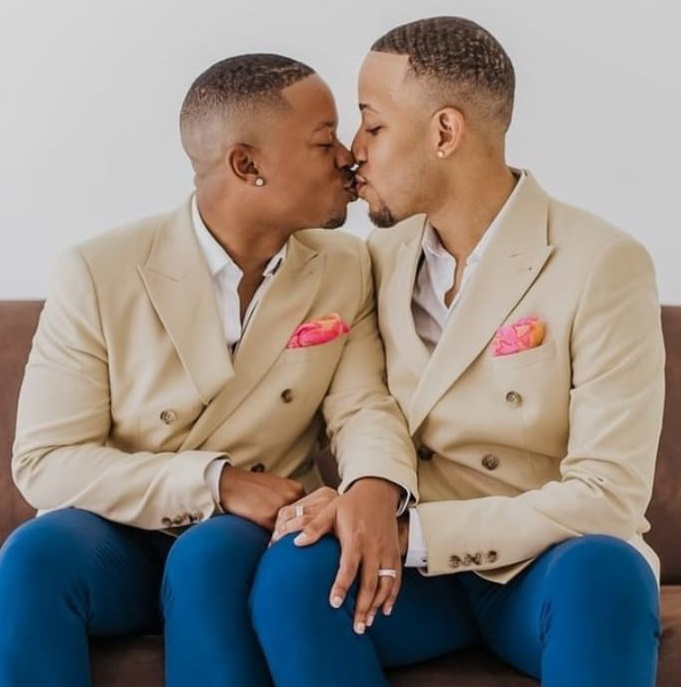
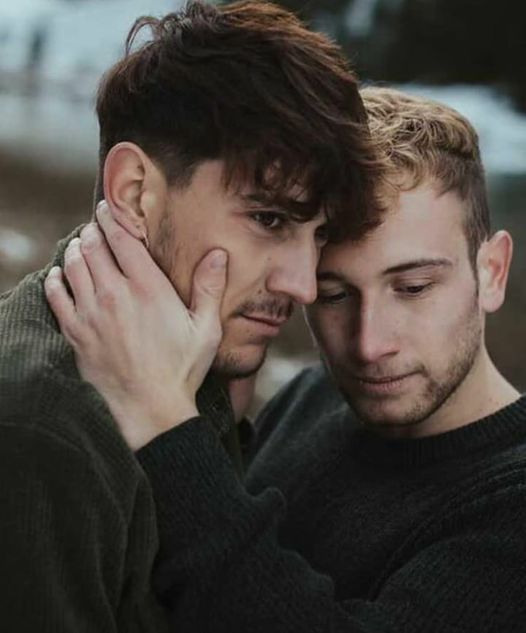
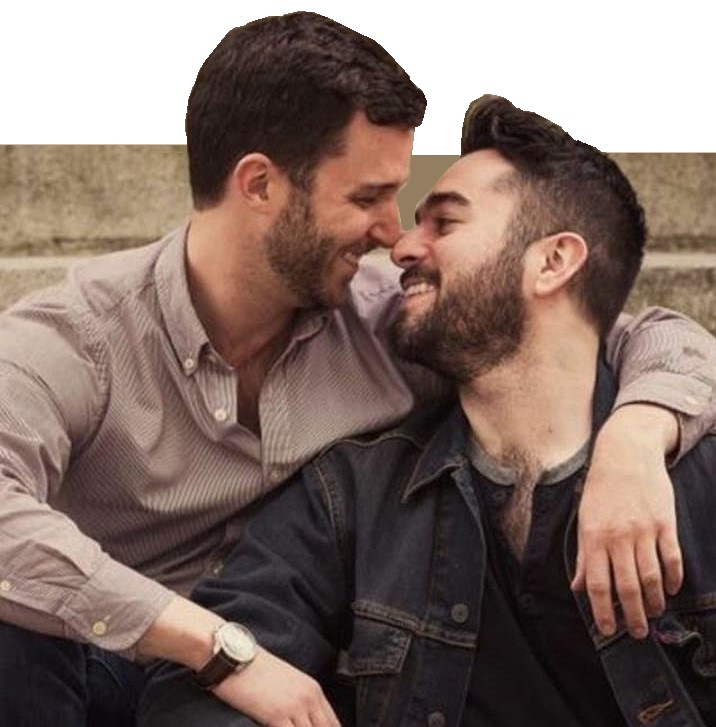
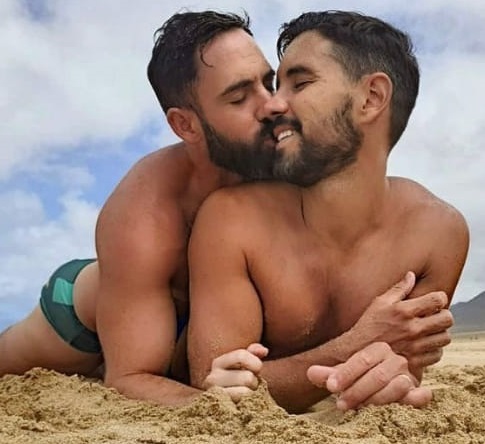
PBS Video: History of the Word Gay
Wikipedia:
Definition of Gay
Video: Why Are Homosexual People Called Gay?
Gay Love
He's Not My Boyfriend
Johns Hopkins: Gay and Bisexual Men's Health Issues
Awareness Advocacy
Project: What
Does Gay Mean?
Male Montage: To Love
Somebody
Video Discussion: Gay Men Describe What it Means to be
Gay
Gays You'll Date Before You Die
NIH Report: Effects of
Masculine Ideals on Gay Men
Pics of 'Queer Eye' Heartthrob Antoni
Porowski
Another aspect of flexibility discussed by participants
was the concept of environmental flexibility. Youth
commented on how being gay/bisexual allowed them to
explore more physical places and spaces, specifically
ones that are gay-friendly. In this sub-theme the young
men did not discuss the need to escape from unsafe
spaces, but rather emphasized the benefits of visiting
places specifically tailored to LGBTQ youth.
Well, I really think I'm really lucky when it comes
to that. Like there's just so much available now that
like I really like to utilize. Like there's so many
organizations, like I go over to [name of agency] and
there's gays everywhere. And um, there's just all,
there's dances to go to. I love to go dancing. And I
mean, it's just like if you like really sit down, like
count your blessings, there's so much out there that I'm
really like grateful for and like that I really am lucky
to have available to me, like when it comes to in terms
of like things that are oriented for my sexuality and
for people that are like, and for places that I can go
and be safe, doing whatever, and stuff like that. That's
very important to me.
(Paul, 16
year old, Italian gay male)
Another sub-theme, which emerged as a positive
conceptualization, was gender flexibility. Participants
who discussed gender flexibility reported the ability to
experiment with gender roles. Specifically, the youth
spoke about their ability to display both masculine and
feminine traits.
I think you’re free from some of the things that we
talked about, some of the ideas of what it means to be a
man. You don’t really have to, it’s not something you
really have to think about when you’re gay. You can kind
of be who you are and not have to worry about um, being
masculine or being ah, a stereotypical man.
(Michael,
22 year old, White gay male)
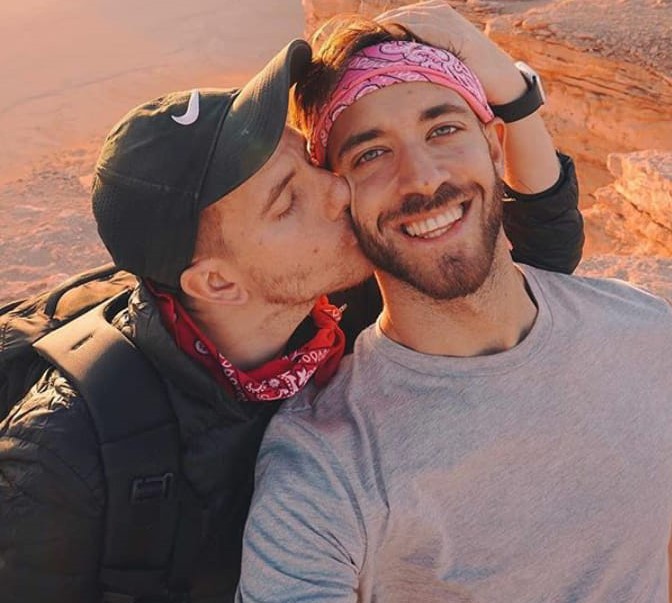
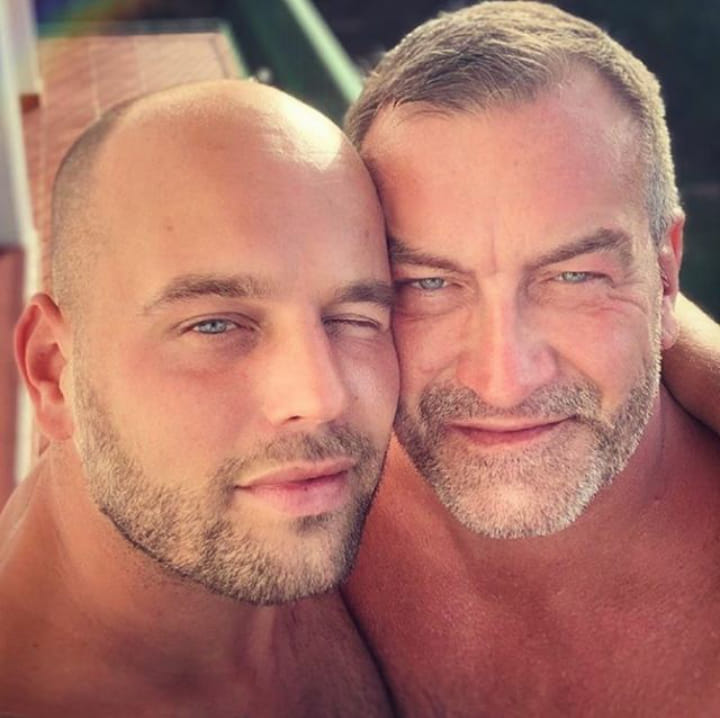
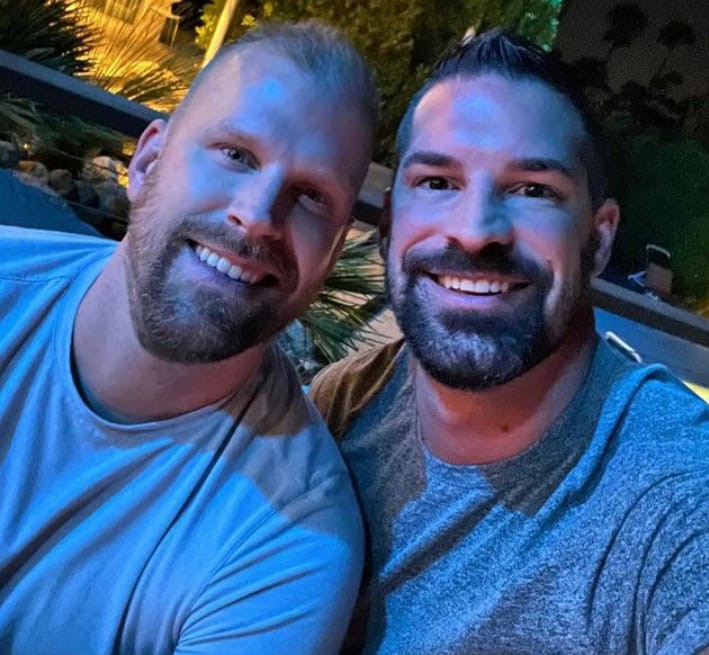
PBS Video: History of the Word Gay
Wikipedia:
Definition of Gay
Gay Men Share Sweet, Funny, Relatable Moments They Knew
They Were Fam
First Time Gay Stories and Experiences
Gay Story: How I Met the Love of My Life
Video: Why Are Homosexual People Called Gay?
Awareness Advocacy
Project: What
Does Gay Mean?
Male Montage: To Love
Somebody
Video Discussion: Gay Men Describe What it Means to be
Gay
Gays You'll Date Before You Die
NIH Report: Effects of
Masculine Ideals on Gay Men
Pics of 'Queer Eye' Heartthrob Antoni
Porowski
Similar to the example on sexual flexibility, this
participant utilized a strategy of resisting stereotypes
specifically associated with gender. Many of the
adolescents who spoke about gender flexibility offered
their views on the concept of masculinity, and how being
a man has been constructed by society. Individuals whose
responses reflected this sub-theme expressed a sense of
freedom, as well as a sense of strength gained from
rejecting stereotypes associated with being a man.
Another major theme identified as a positive
conceptualization was connectedness. Participants
focused these internal messages either on being
connected with females or connected to the gay
community. The youth who described a connection with
females emphasized that females generally find gay men
trusting and valuable in providing emotional support, as
compared to heterosexual men.
Well, I mean, there's a lot of things. I mean, like
um, I feel like um, women are more trusting of me
because I'm gay. Um, um, which is a plus, because I'm
kind of gonna be that rock in a way, like they can come
to me and talk to me about stuff. However, I mean, I
guess I was coming up like that figure anyways before,
but it's definitely more so now.
(Sean, 21
year old, Eastern European gay male)
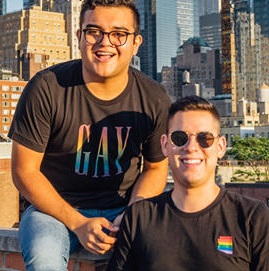
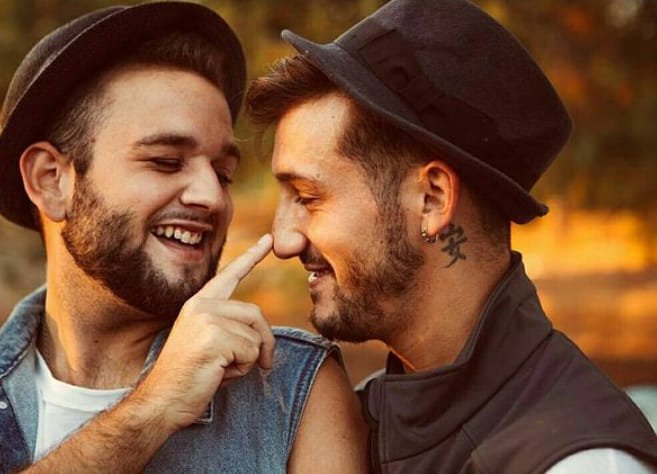
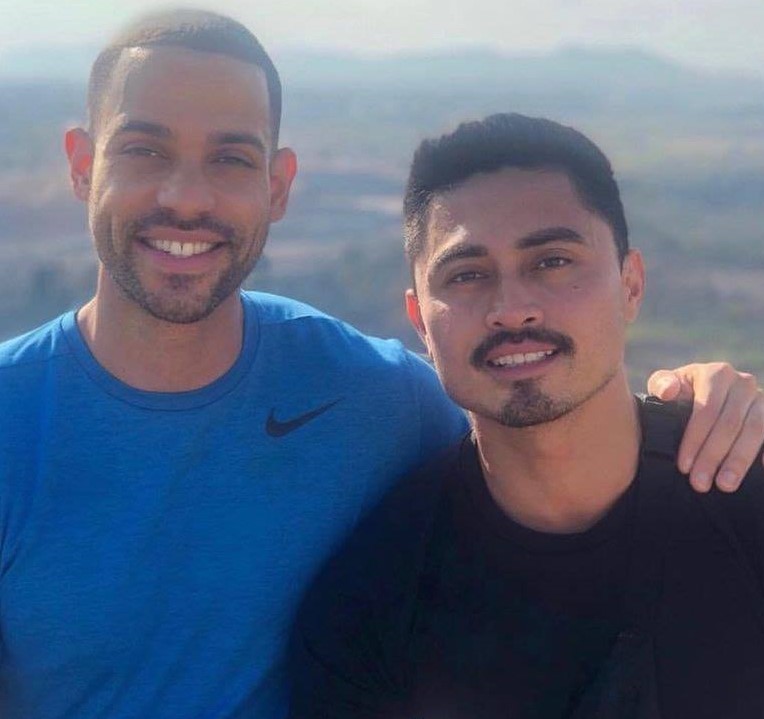
Advocate: The Gay
Moustache
Francis and Nicholas
First Time Gay Stories and Experiences
Video Documentary: The Gay Word
Wikipedia: Homosexuality
Accepting Yourself: Being
Gay is Not Easy
SPLC: Anti-Gay Myths
Debunked
Gay
Man Thriving
Gay Story: How I Met the Love of My Life
Another participant who commented on connectedness with
females argued that the reason for this closeness is the
fact that straight men typically befriend women for
sexual purposes, while gay men do not. Additionally, he
argued that both gay men and straight women are able to
share their experiences with male sexual/dating partners
and receive advice from one another.
Some youth
expressed a sense of connection to the gay community.
They discussed feeling connected to other individuals
who had gone through similar experiences and their
ability to bond through hardships. Participants also
expressed the ability to form social support groups with
other gay people.
Positive things about being gay? Um, it's, it's very
easy to, to, when you do find somebody that is, that is
very similar to yourself, it's very easy to find a
connection with them because they've endured a lot of
the same hardships that you have and, and you, and it's
easy to talk, I feel like it's very easy to talk to
somebody else who is gay, because they've experienced a
lot of the same things that I have in coming and
developing their identity.
(Patrick,
20 year old, White gay male)

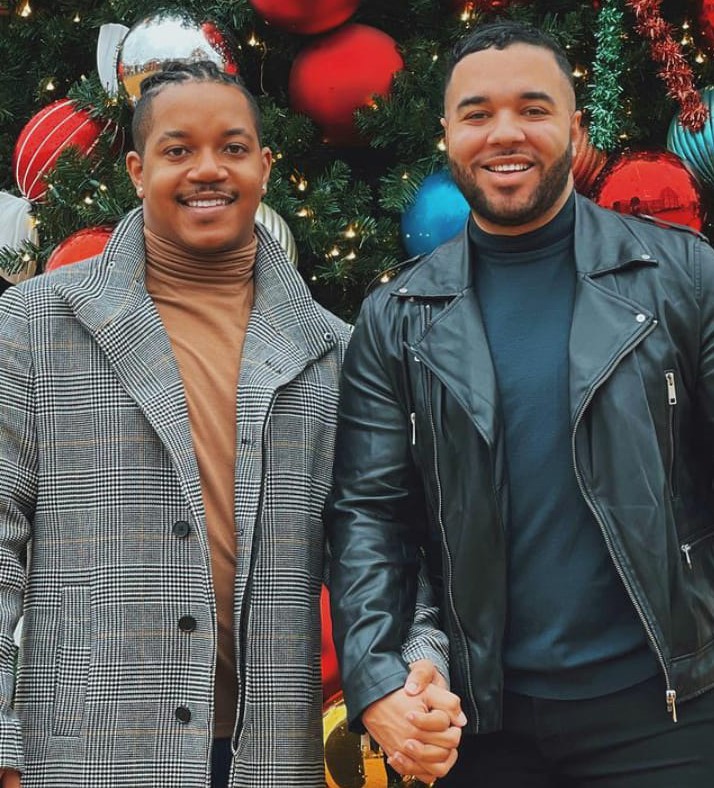


Male Montage: Trouble
Makers
Video: Hottest Openly Gay Male Celebrities
100 Gay Things To Do Before You Die
Michael and Ben
Your Song: My Love My Life
Land of Storms: Fine Line
For Anyone
Who's Been Told It's Just a Phase
Kang Guk and Tae Joo: Take
Me Apart
Resiliency in the Face of Gay-Related Oppression
Although many of the youth focused on positive
conceptualizations of being gay/bisexual, some
identified ways in which they had demonstrated
resiliency in the face of oppression. Participants
expressed their resiliency in four ways, including
acceptance, self-care, rejection of stereotypes, and
activism. Inherent in many of the themes and sub-themes
in this section is the acknowledgement and confirmation
that these youth have experienced various forms of
oppression and marginalization related to their sexual
orientation, but they demonstrated resiliency and
strength in the face of these negative forces.
Youth who discussed messages of acceptance either
centered their responses on self-acceptance or
acceptance by others. The youth who described
self-acceptance argued that exploring their sexuality
allowed for the opportunity to be who they are, which
resulted in greater feelings of happiness.
Well, um, it’s, it’s fun (chuckles) at times. Um,
positive about being gay? Ah, well, just because it is
what I am, um, the more I come to accept it, the more
fun I have, I guess, with it. Ah, it’s hard to say a lot
of positive things of being gay, because society doesn’t
see it the same way. I don’t know. So that’s all I have
to say.
(Ben, 20
year old, White gay male)
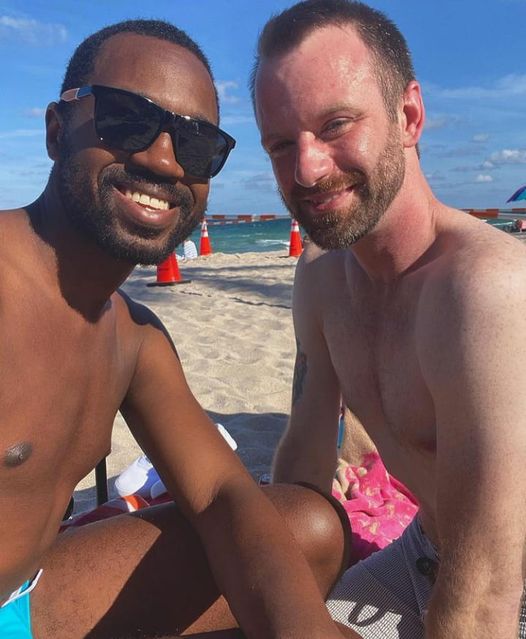
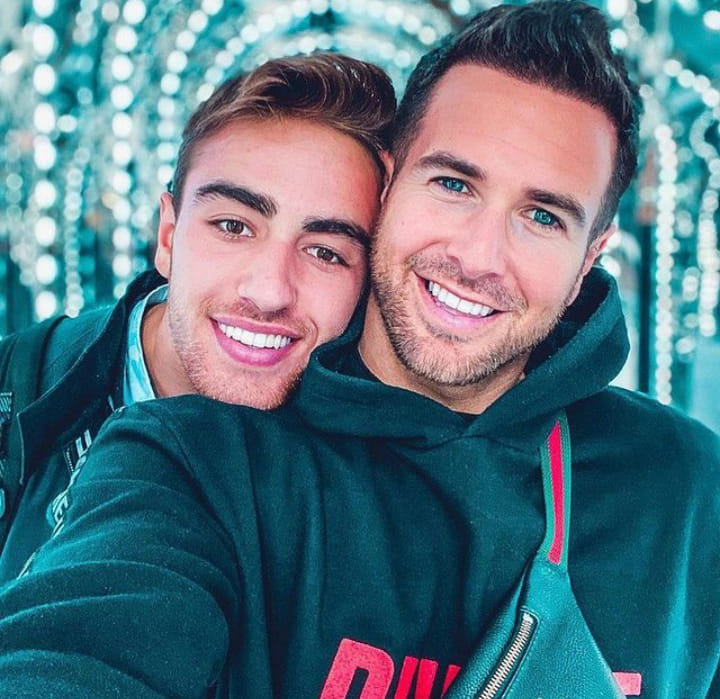
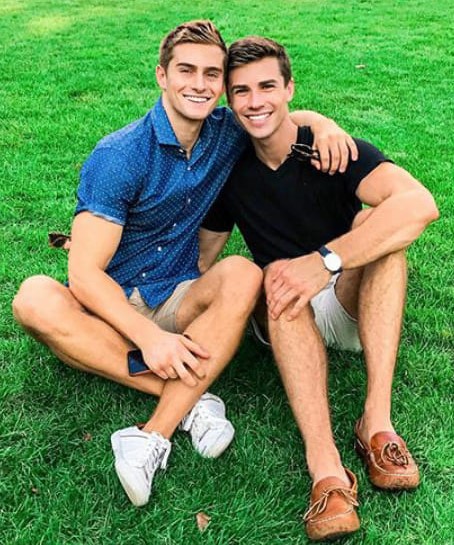
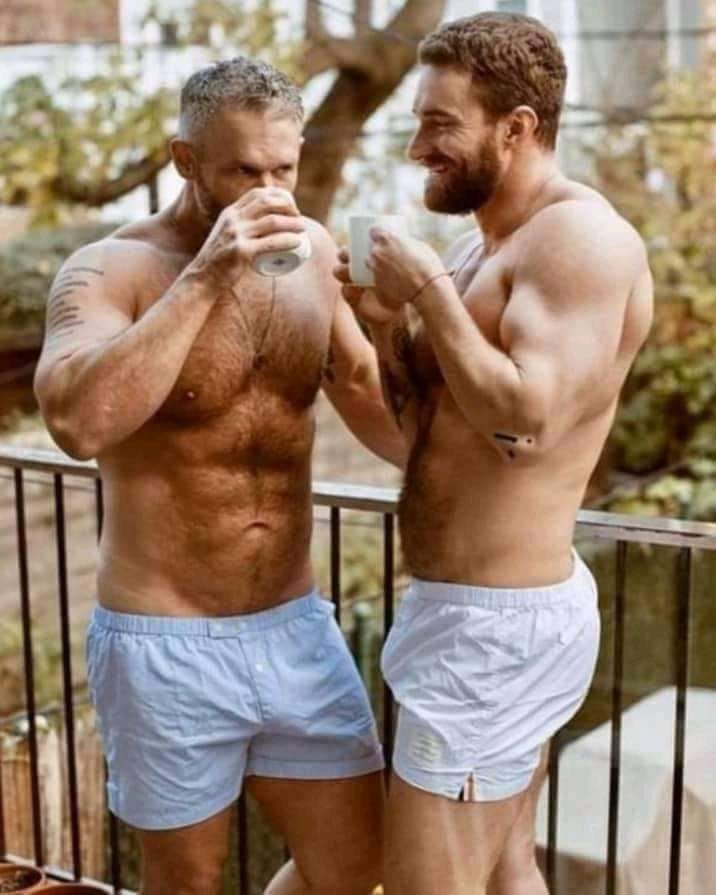
Alex and Winston: Someone
You Loved
Come At Me Bro
Male Montage: Blame it on the Girls
Homosexual Men
Things Gay and Bi Men Should
Never Do in Healthy
Relationships
Research: Unique Stressors for Gay Men
True Definition of Gay
Advocate: Gay Men Photo
Feature
Video: What Does Gay Mean?
Steve's Coming Out Story
HRC: Responding to Children's Questions About LGBTQ
Issues
Video Talk: Dating is Difficult for a Gay Guy
He's Not My Boyfriend
Rock and Archie: Rescue My Heart
Awareness Advocacy
Project: What
Does Gay Mean?
Info: Sexual Orientation
Here the participant acknowledges pervasive negative
societal views of gay/bisexual people, but he has been
able to find self-acceptance and enjoyment in being gay.
Another participant who discussed self-acceptance
focused on the importance of “not hiding behind
something.” He empowered himself and gained strength by
not concealing his sexual orientation identity around
others.
Several of the youth in the survey reported acceptance
by others as another form of resiliency. They discussed
feeling connected to friends who accepted them as
gay/bisexual young men, and expressed how such
acceptance served as a form of social support. The
following youth talks about the fun he has with his
friends who are not gay/bisexual and emphasizes that a
critical aspect of his relationship with them is that
they do not “judge” him or hold negative views of
gay/bisexual people
Now the positives, like my friends and stuff, they're
the ones I kick it with, them, I'm acting like, okay, we
gonna go, we gonna go out with him and we just gonna
have fun. We gonna enjoy ourselves, to go the movies, go
to whatever, go out to eat and stuff like that. They
don't judge me…
(Chris, 23
year old, African American gay male)
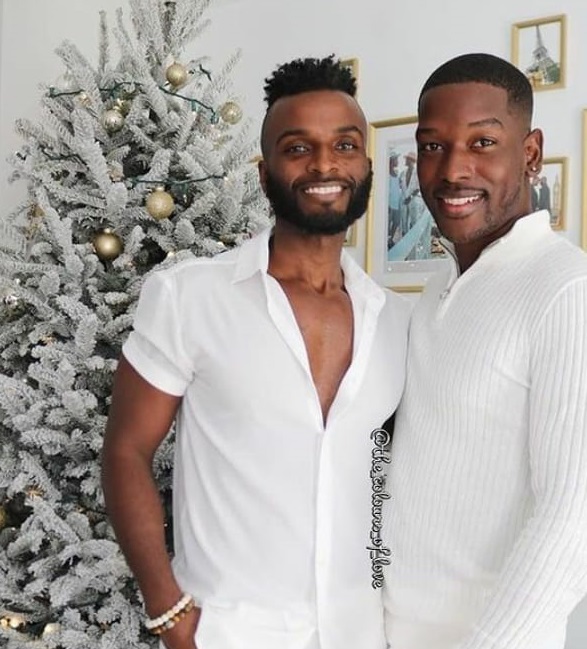
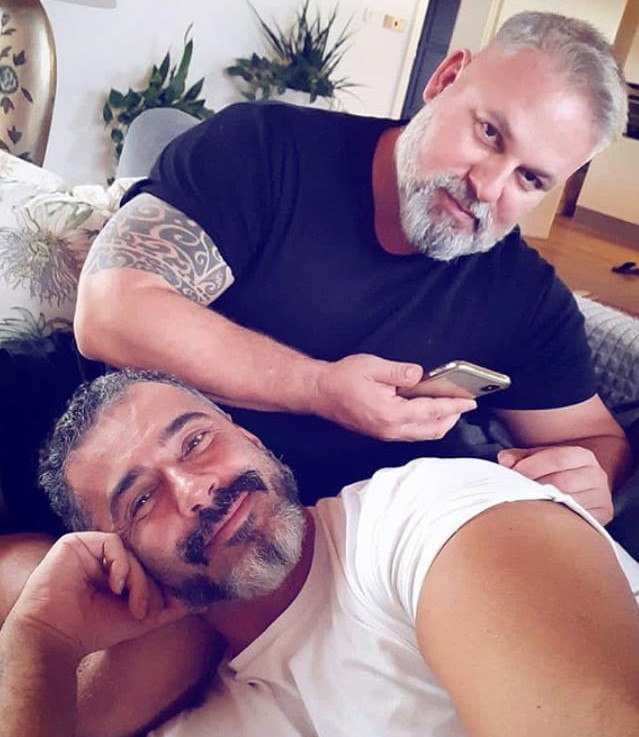
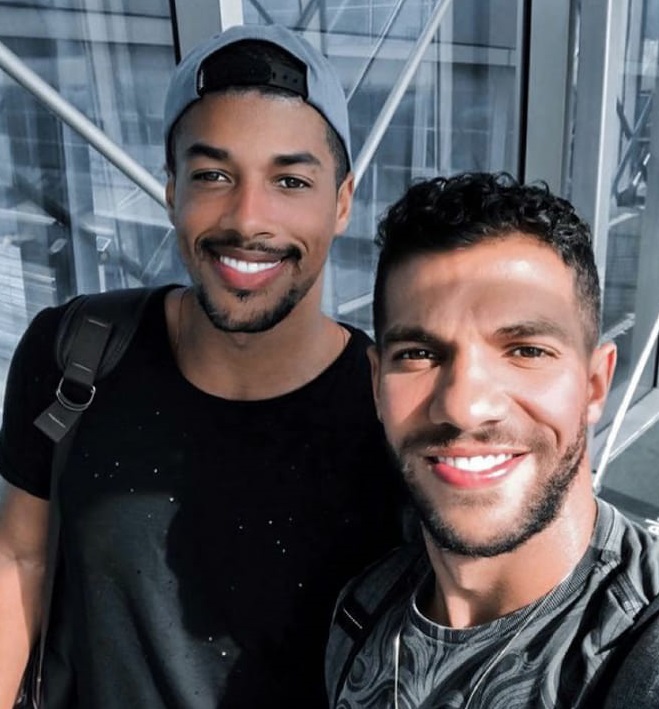
Wikipedia:
Definition of Gay
100 Gay Things To Do Before You Die
HuffPost: In Praise of
Visiting the Gay Bar
Video: What Does Gay Mean?
Alex and Winston: Someone
You Loved
Johns Hopkins: Gay and Bisexual Men's Health Issues
Kang Guk and Tae Joo: Take
Me Apart
Come At Me Bro
Participants also acknowledged self-care as a resiliency
strategy. Those that stressed the importance of
self-care discussed the need to take care of oneself on
both an emotional and physical level. Emotional
self-care was discussed in the context of acknowledging
and being aware of the negative emotional impact of
heterosexist societal messages on them as gay/bisexual
young men, and then building resistance strategies to
such pervasive negativity. This often resulted in
increased vigilance around homophobic individuals. One
young man discussed the potential negative consequences
of being openly gay around “homophobic people” and the
need to be responsible when making decisions about
sexual orientation disclosure.
And be careful. Be responsible with it. Not just be,
I mean, if you're out you have to be careful of like you
don't run into like those certain people that's gonna
hurt you. Like you have to be responsible enough to take
care of yourself, if you're gonna be out….Well, think
about like certain things, like think that, try not to
get shot or something. Be careful who you tell or who
are around, everything, be out and about, like try not
to get killed or anything. Because there's a lot of
homophobic people out there
(Jose, 19
year old, Hispanic queer male)
Physical self-care was typically discussed in the
context of physical appearance and sexual health, such
as carrying condoms in order to protect one from
sexually transmitted infections. This sub-theme was not
directly connected to experiences of oppression as
gay/bisexual youth, but some of the youth did note
higher rates of HIV among gay/bisexual men as a
motivating factor in their use of condoms during sexual
activity.
I mean, I think if you’re bisexual and you’re
sleeping with guys and girls you should definitely be
educated in protecting yourself with a guy as,
specifically with a guy or specifically with a girl.
(Kevin, 21
year old, Multiracial bisexual male)
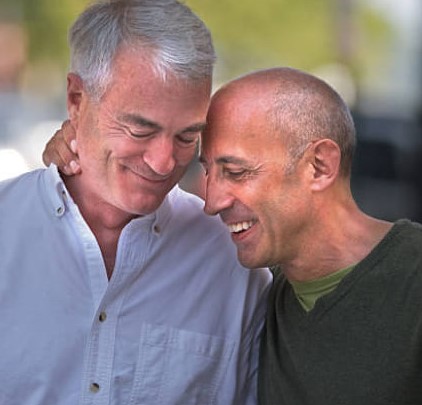
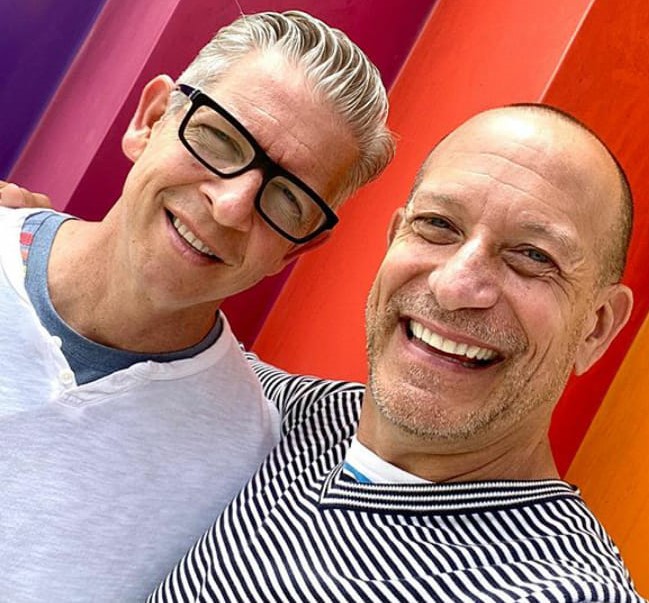

Video Discussion: Gay Men Describe What it Means to be
Gay
Male Montage: To Love
Somebody
For Anyone Who's Been Told It's Just a Phase
PBS Video: History of the Word Gay
Gay Movie Montage: Colour Me In
Perfect: My Love My Life
Wikipedia: Homosexuality
SPLC: Anti-Gay Myths
Debunked
Video: Boyfriend Adventure
CDC: Gay and Bisexual
Men's Health
Male Montage: Blame it on the Girls
Gays You'll Date Before You Die
Gay/bisexual youth who reported the rejection of
stereotypes as another form of resiliency stressed the
importance of developing a positive sense of self that
is not restricted by societal messages regarding what
gay/bisexual men “should” do, think, and feel. Several
of the young men shared that the vast majority of
general societal images connected with the gay community
are negative (promiscuity, HIV), and promote harmful
stereotypes of gay/bisexual men; thus they should be
rejected.
My
friends are like, gay guys are supposed to dress like,
gay guys are supposed to like be all done up. And um, I
think there's the role that, and there's the role of gay
people are supposed to hang out in bars in the gay
section. And gay people are supposed to um, gay people
are supposed to be affectionate and effeminate and all
these different things. And these are all roles that fit
a lot of people. But the roles that are also
stereotypes. And oftentimes not true. But those are the
roles that I think you most commonly see associated with
the gay community.
(Nick, 18
year old, Irish American gay male)
Finally, several participants talked about activism as
another form of resiliency. They highlighted an
individual desire to be knowledgeable about issues that
have affected the LGBTQ community, in order to guide
their future aspirations. The following youth emphasizes
the need for youth to understand the shared history of
the gay community, and the sacrifices that people have
made in the past (including death) so that the youth of
today can have greater freedoms.
It's kind of like the same as being Latino which is
like right now you're history and all, like right now
where you came from because being gay is more than just
being attracted to somebody of the same sex. There's a
history behind it. People made sacrifices. People died
for this. And just knowing where you've been, or where
your people have been, so you know where you're going. I
think it's the responsibility of every gay person to
know where they want to go. I know a lot of the young
people that I work with are like yeah, they don't really
care about gay marriages. But they're like, well, in ten
or fifteen years, you may care about it. And this is
something that affects your brothers and sisters, and
just seeing people like that in that view of knowing
where you're coming from and fighting for stuff that
your community needs.
(Oscar, 23
year old, Puerto Rican gay male)
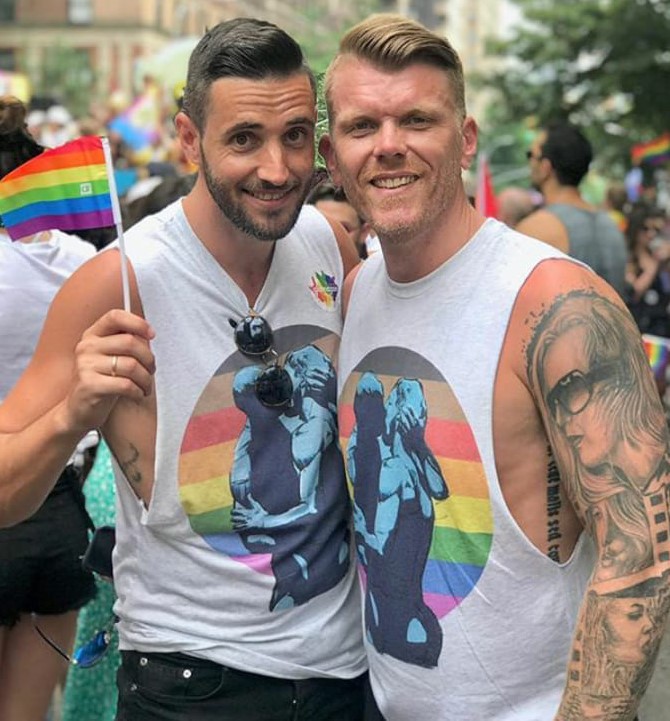
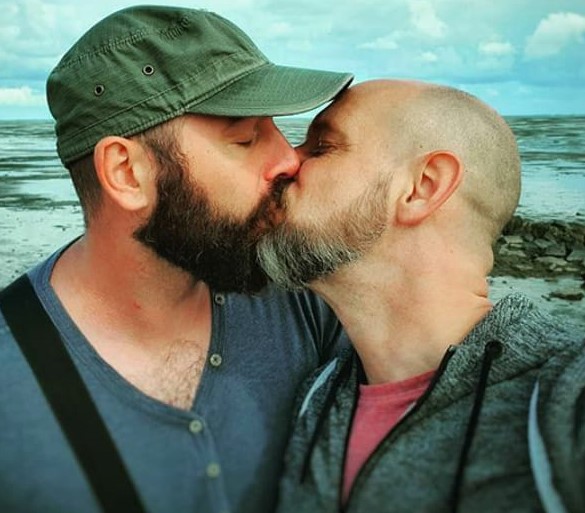

Some youth also discussed the need to educate and
support other young gay/bisexual men in order to promote
well-being among their peers and support future
activism. The following participant discusses the
importance of young people having someone who is older
to serve as a buffer against negative societal messages
and to provide them with affirmation and support.
Yeah, like when you'd be, like to, to I don't know,
say educate or to just show the way into the gay world,
kind of like, like showing, like helping them get
through. Because like, especially for a lot of young
people, it can be a very tough thing to do, especially
growing up in a place, in a world where it's not the
majority and so it's not always considered right or it's
not always considered okay, especially when in that kind
of place it can be kind of tough for younger people to
deal with it. Or to maybe accept it, but just having
someone who's older to have like telling you that it is
acceptable and you should accept it and be who you are,
it's important a lot of times.
(Paul, 16
year old, Italian gay male)
[Source: What’s Good about Being Gay?: Perspectives from
Youth, Gary W. Harper, Asya Brodsky, Douglas Bruce,
2013]
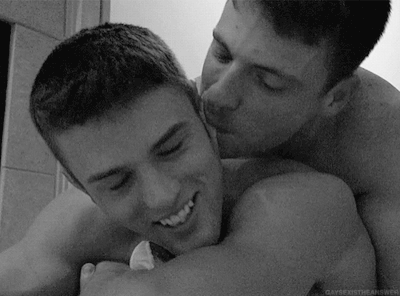
LGBTQ People are Marvels
Gay Story: How I Met the Love of My Life
Info: Sexual Orientation
Pics of 'Queer Eye' Heartthrob Antoni
Porowski
TED Talk: Why Am I So Gay?
He's Not My Boyfriend
Male Montage: Trouble
Makers
Gay Men's Health and
Identity: Social Change and Life Course
Video Documentary: The Gay Word
Advocate: Gay Men Photo
Feature
PBS Video: History of the Word Gay
Michael and Ben
Gays You'll Date Before You Die
SPLC: Anti-Gay Myths
Debunked
True Definition of Gay
Advocate: The Gay
Moustache
Video Discussion: Gay Men Describe What it Means to be
Gay
Francis and Nicholas
Gay
Man Thriving
HOME
QUEER CAFE
│ LGBTQ Information Network │ Established 2017
|